#character analysis: isabela madrigal
Note
Modern day Isa would definitely have tattoos with shit like this written on them:
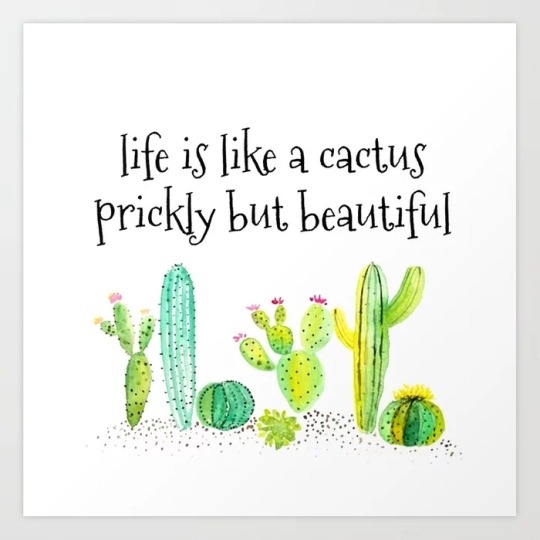
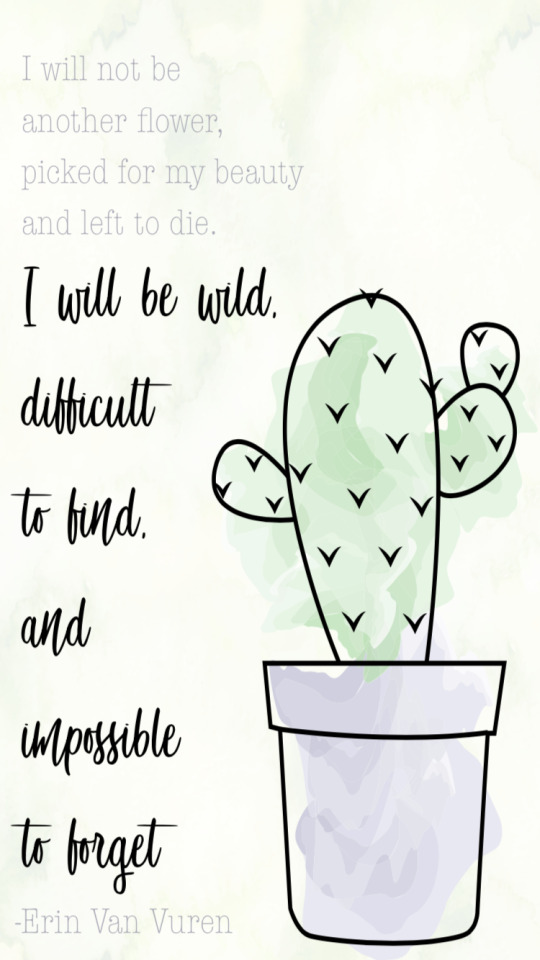

Or something like “The desert works to forbid it but the cactus still blooms.”
You know @isamiral-soulwolf and i were just talking about the differences between book!Isabela and movie!Isabela, and book!Isabela would 100% totally get one of these, because she's soft and baby. Movie!Isabela tho? I see her a bit more on the punk-ish side.
#btw i'd never actually thought about the link between cacti thorns as a protective measure and isabela's actions like#like i always saw it as ''oh cacti aren't as cute and pretty as flowers'' but that last picture has me thinking like#like wait no they actuallh reflect her true personality better because secretly she always keeps her walls up#and she needs to stand up for herself aka defend herself even if it hurts her family's feelings#like a cactus hurting the people and animals that touch it#does that make sense???#like an ''ugly side'' that needed to be accepted not only because it's part of her#but because it's exactly what she needs rn#sharp thorns to keep alma and that m/aluma dude AWAY#character analysis: isabela madrigal#kinda#sorta
8 notes
·
View notes
Text
Can't stop thinking about Isabela and Mirabel as reflections of who Alma is now and who she used to be before the tragedy. The way she clings to Isabela's perfection is reminiscent of how she uses her own perfrct image to drive away the past that haunts her, and while her pushing Mirabel away is due to her own fears of the Miracle fading away, I wonder how much of her avoidance is because of Mirabel reminding her too much of who she used to be?
People often say that Mirabel mirrors Pedro, but I'd argue that she's a perfect reflection of who Alma was supposed to be if only life hadn't dealt her such a cruel hand. Does she look at her and think of simpler times? Does Alma look at Mirabel and remember how she used to have a girlhood that was taken away far too early in life?
It's strange to think that despite Isabela having the life that Alma wanted to have for her and Pedro, Mirabel—the granddaughter that she has disconnected from—is the one that actually embodies her the most. And Mirabel herself doesn't even realize that.
#encanto#character analysis#cant really properly put into words what im thinking rn#but its just#i cant help but wonder if alma was running away from her past self by disconnecting from mirabel#because it hurts to remember that she used to be so happy#and it makes her angry that she used to be so happy when the world can be so cruel#the river scene really threw me for a loop because of this#i saw young alma but i also saw mirabel in her#and its so heartwrenching how a river marred by tragedy can show the parallel between family members of different generations#actually dying rn#mirabel madrigal#alma madrigal#isabela madrigal
36 notes
·
View notes
Text
Something I Think About Often Regarding Isabela Madrigal
The movie really didn't do her character that much justice... kind of riding her off to be this aggressive sister without explaining why but then chalking it up to "having to be perfect", giving her a song (even though I adored her transformation), and then all was solved with a hug.
They don't go in depth like they do with Luisa before and during Surface Pressure.
They don't mention how truly miserable Isabela must have been, how suffocating that pressure of perfection truly was. Isabela, like the rest of the Madrigals never really had a childhood. She was never able to just breathe and be a human being instead of this plastic, "picture perfect" shell she was forced into.
She didn't have her own life, her own autonomy, and was paralyzed by the fear of disappointing the family, of being shunned. She had to craft this image that was nothing but a lie. Everything was a façade she had to put on for years and it most likely drained the life out of her.
No wonder she was so bitter and angry, sadly Mirabel was the easiest target for this projection of resentment (Not excusing it, just making an observation.)
And when she is finally able to express her true self, Alma indirectly scolds her for it. (Yes, it is mainly geared towards Mirabel. But, she literally said that Isabela was "out of control".)
Isabela's whole life was controlled by others so for Alma to say she was out of said control must have really hurt her. Hell, in that scene she looks like a scared little girl.
Overall, I wish the movie delved deeper into this. But hey, the fandom is doing it for them so it's all good ^-^
#isabela madrigal#mini character analysis#mini rant#isabela my beloved#encanto#disney encanto#isabela madrigal angst i guess
33 notes
·
View notes
Text
A lot of people in the fandom have already said this before, but I gatta say it as well. I absolutely love that Mariano isn’t your stereotypical handsome jock character, who’s a prissy jerk obsessed with himself, only caring of his looks or obsessing over Isa and nothing else.
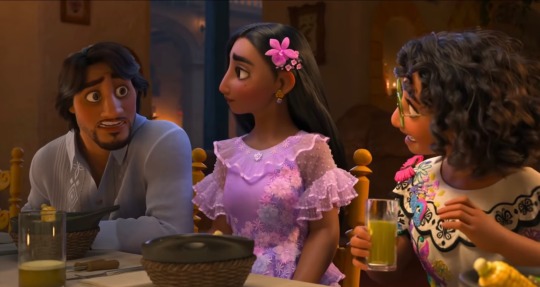
We didn’t get a lot of Mariano in the film, what we have about him is the bare minimum information and crumbs, but you can tell he’s layered. Instead of being a one note handsome pretty boy, he’s actually very kind, thoughtful, and caring. During the events of the film, he develops a genuine romantic crush on Isabela, wanting to impress her. They could have so easily made him that stuck up dude who flexes and brags about his good looks, but instead he genuinely liked Isabela, and wanted what was best for her. He planned to propose with a romantic speech, and even wanted to play the piano for everyone. During the dinner scene, he even asks Mirabel if she’s okay, not even looking or sounding annoyed and rude. Of course, you then have the sweet fact that he writes poetry to his mother and takes care of her a lot, which I love so much. I also like the fact that he doesn’t get angry when he realizes Isabela didn’t want to marry him, sure it happened off screen, but as we saw, he was more disappointed because he’s clearly lonely and wanted someone to love, and in the end, he got that, with someone who loved so many things about him, not just for his looks but for his heart. I know it’s not a big deal to some, but to me it is because as said before, they could have so easily made him one note and mean spirited. I’m glad they didn’t go in that direction even if Mariano isn’t in the film a lot, but I will say I DEFINITELY want to see more or him, he seems like a lovable character, an absolute chad lol.
#Encanto Mariano#encanto#jared bush#walt disney animation studios#disney’s encanto#mirabel madrigal#walt disney#bryan howard#disney animation#family madrigal#isabela madrigal#encanto marinao supremacy#I want to see his relationship with Dolores too AHH#disney characters#encanto movie#character analysis#mariano guzmán
137 notes
·
View notes
Text
Encanto and flaws:
seen a comment a while back saying “mirabel is a self absorbed character”. And ultimately it got me thinking. Do I believe that mirabel is self serving and self obsessed? no, I don’t but what that comment did point out is that even though mirabel is the main character she’s not 100% good all the time. and that’s a good thing because people aren’t 100% good all the time. It also told me once again about the theme of this movie, perspective. The film is from mirabels pov so we immediately see everything about her family through her. Some people say mirabel was ignorant at the start of the movie and didn’t care enough about other peoples problems forgetting that lack of communication was something this family IMMENSELY suffered with. Mirabel didn’t know any better because nobody would communicate that with her. She’s not a very self pitying character as through my viewing of the movie I would see as the type to suck it up and push it down to help everyone else. I wondered why that person singled out mirabel in particular though, yes her actions had selfless and selfish motivations like any human would we also want to make ourselves happy. Mirabel was mistreated and wanted to be appreciated but she also cared deeply about the people in her life and wanted to solve what was going on. Being selfish isn’t always a bad thing, encanto shows that! Isabela for sure example put on such a good mask that mirabel (and the audience) had perceived her as self absorbed and mean. Ultimately I think every character in this movie is “self absorbed” to an extent because none of them actually realize that the other is suffering, it’s the lack of communication that leads to this. I think you can argue at the start of the movie mirabel was ignorant (not in a bad way) but so was everyone, mirabel was the only one willing to change that, she wanted better for herself but she also wanted better for her family. All she wanted to do was to make her family proud, to be accepted. Self absorbed is when your actions have solely selfish motivations and lack of care for other people, everyone was self absorbed in some way but not at the point you can outright label it. The thing with encanto is these characters have layers to them even though mirabel is our protagonist she still has flaws, she’s overly persistent and passionate often stubborn and forgets to think things through and it’s those qualities as well as all her other ones that make her such a well rounded character. Basically encanto characters are too nuanced to just have single labels pinned on them.
#encanto#encanto disney#disney encanto#mirabel encanto#character analysis#encanto isabela#madrigal family
39 notes
·
View notes
Text
the parallels between bruno and isabela
(an analysis absolutely no one asked for)
in one of the official encanto books it was said that bruno had been the golden child of his generation before becoming the exiled outcast. i like to think about how sad this is especially when you consider the parallels with isabela, the current golden child of the family. and i think it makes a lot of sense as bruno is the spitting image of pedro, much like isabela is the spitting image of a young alma, therefore i think alma saw pedro in bruno the same way she sees herself in isabela.
and this was very much a double edged sword, as while it meant he was the golden child and the favorite, it also meant that alma was very hard on him, especially when he showed to be not like pedro. i think everyone kind of resented bruno for this reason because he was alma’s perfect golden child and everything he said came true. so he grew used to being blamed for everything because he took his golden child status in stride, and i think he and pepa had a similar dynamic to isa and mirabel.
when he had his last vision, he felt like a failure, because he was so used to being blamed for everything that he truly believed that if he had a vision of the miracle dying, it was his fault. he knew how hard alma was on him, and so he couldn’t face her after he had that vision. so he decided to just disappear. when he exiled himself into the walls it was like he was finally shedding his golden child status, as there was no one around to tell him who to be or what to do, just him and his rats.
bruno leaving truly broke alma. not only because it felt like a betrayal of his golden child status, but also because she had projected pedro’s personality on him so much that by losing bruno, it felt as if she’d lost pedro all over again. and in a way, she had, as bruno’s disappearance was confirmation that bruno was his own person and not just a replacement for pedro, and she didn’t like that.
the same thing happened with isabela. she was the favorite, the perfect golden child. the more she grew to look almost exactly like young alma, the more alma projected herself onto her. and just as with bruno, this proved to be a double edged sword. as while isabela was the golden child and favorite, it also meant that alma was hard on her. alma tried to shape isabela into a perfect version of herself, everything she wanted to be when she was younger, but she also projected her own insecurities onto her and was as hard on isabela as she was on herself, especially when she showed to be like the parts of alma she didn’t like about herself.
when isabela broke free from alma’s perfect projection and started actually being herself, it hurt alma because it once again reminded her of the things she didn’t like about herself, and by isabela not being the perfect golden child, not only was it conformation that isabela was her own person and not just an extension of alma, but it was also a reminder to alma that she herself wasn’t perfect. in losing bruno, she lost pedro, and in isabela’s failure to be perfect, she saw a failure of her own.
isabela’s line in wdtab says a lot about this. firstly, she’s the only one to get a positive vision, which shows not only how kind and caring bruno is to go out of his way to tell only the good things to his niece, but i think also shows how he relates to her and sees himself in her. he was the golden child, he knows what it’s like to be put on a pedestal and the pressures and expectations that come with it, and he sees the way alma puts isa on a pedestal and projects onto her just like she did with him, so he makes sure to only tell her the good things to ease the pressure, because he doesn’t want isa to end up the way he did.
i also think the wording is important: “he told me that the life of my dreams would be promised and someday be mine.” he doesn’t just promise her a perfect life, but specifically the life of her dreams. which is kind of sad and ironic at this point in the movie, because to everyone else, it seems as if the prophecy has come true. her life seems perfect. however, it isn’t the life of her dreams. as perfect as her life may seem, it’s not what she wants at all, so the prophecy has not come true yet. when isa breaks free from alma’s mold, her life no longer seems perfect, but she’s finally living the life of her dreams, doing what she wants. the prophecy has finally come true.
i like to think that bruno would be so proud to come back to the family and see how isa has broken from alma’s projection and is finally doing what she wants, and learned to be herself, and happy to see that his prophecy came true and she didn’t end up like him.
#encanto#encanto analysis#bruno madrigal#isabela madrigal#alma madrigal#i really hope we get more interactions between bruno and isa in an eventual sequel/series#bc they barely interact in the movie#but the parallels between them are really interesting and it would be a really cool dynamic to explore#they seem so different but are actually quite similar if you think about it and i’d love to see them bond#and see how alma learns to cope with both of them being themselves rather than her projections of them#now that she’s grown and learned as a person in the end of the movie#i just think we should talk about the parallels between isa and bruno more#and that it’s one of the things i most want to see in the series and could be really interesting#also someone has probably said this before but i wanted to share my thoughts#so don’t yell at me if this isn’t original i just love analyzing this shit and haven’t seen many ppl talking about it#anyway no wonder they’re my 2 favorite characters lmao#i was also the golden child and then kinda became a disappointment so it makes Sense
50 notes
·
View notes
Text
Hey all! So recently Wish was added to Disney+, and I thought it might be a good opportunity for me to watch it again for the first time since I saw it in theaters. I asked you all what I should write about after watching it, and in the end, the top answers were an analysis of the criticism surrounding Wish and something focusing more on the positive aspects of the movie, rather than just the usual mindless bashing.
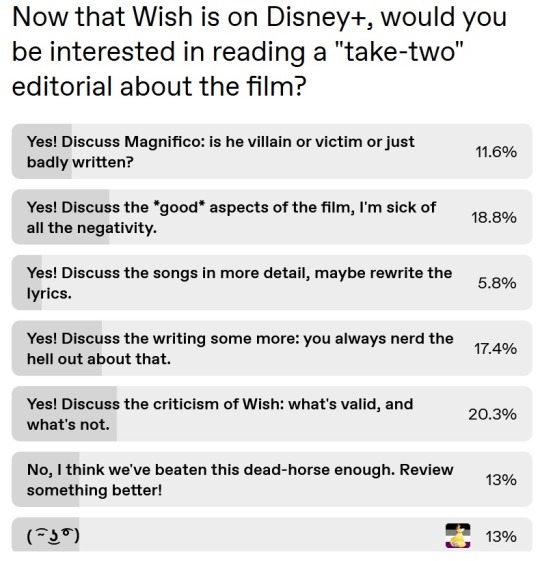
So that's what I intend to write! A look back at some of the common criticisms I've heard about the film, and how much weight they actually have.
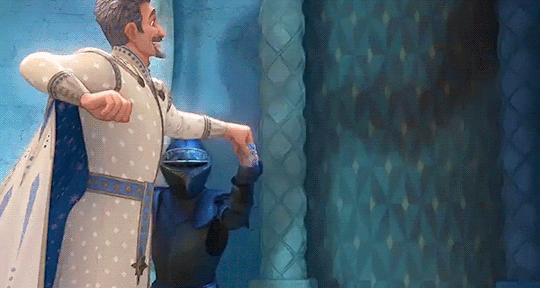
Now, before we begin, I should put in a disclaimer -- I don't particularly like Wish as a film. I think it had ridiculous amounts of potential that were likely hampered by corporate decisions, but I personally find it to be one of Disney's weaker animated films. That being said, as promised, I will make any critiques I do include as balanced as I can, and I will try to include praise where I can too.
So let's start!
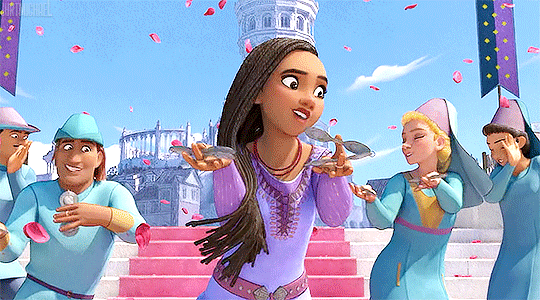
"Asha is a badly written character because she has no character arc."
This is a critique I actually found on a list also discussing valid criticism of Wish, and I knew I had to include it, because even BEFORE I rewatched the movie, I thought it was a bit unfair. Because here's the thing: there are plenty of good films, Disney or otherwise, where the main character doesn't have/need a character arc. All of Walt's original three princesses, Snow White, Cinderella, and Aurora, don't have character arcs. Ariel doesn't have an arc either -- instead her father Triton is the one who goes through a change of heart. Neither does Pongo, or Basil of Baker Street, or Robin Hood. Indiana Jones doesn't go through any real character development in Raiders of the Lost Ark, yet he was interesting enough to inspire a whole movie series! with mixed results. The important part is that even if a main character doesn't develop personality-wise, we should still be able to root for them and want them to achieve their goal. We don't want Cinderella to be abused by her stepfamily -- we want her to find someone who loves her and will take care of her the way she takes care of others. Although it can be more interesting to give your characters an arc while they pursue their goals, it isn't necessary to tell a good story or write a compelling character. Sometimes a story can be more focused on how their life circumstances or environment changes around them.
Another criticism this leads into is the idea that Asha is just another "quirky female lead" a la Rapunzel, except without any background that justifies it. And well...plenty of people griped that Anna was too much like Rapunzel, when Frozen came out. I saw people compare Moana to both Rapunzel and Mulan, when her film came out. Mirabel was also compared to past Disney heroines like Anna and Rapunzel. Even before Wish came out, people tried to argue that Asha looked just like Isabela Madrigal, which was just ridiculous. There's plenty of bad-faith criticism out there that'll shallowly associate one character or story element with one trope exclusively without looking at any nuance or detail. And I think most people would agree that truthfully, none of these female characters are the least bit "the same," no matter how much someone might try to all boil them down to "the quirky Disney female lead." And, like the others, Asha has traits that set her apart. The big one for me is her bent toward social justice, which is something we haven't really seen in a Disney leading lady since Esmeralda in The Hunchback of Notre Dame. Even so, I admit that Asha's quirkiness isn't as justified by her backstory as the trait is by Rapunzel's isolation or Mirabel's "outcast" status in her family, and that does make it so that her characterization has less depth than those of some of her counterparts'. Does that make Asha a bad character? Of course not. If you like Asha as written, that's totally fine. Underdeveloped doesn't have to mean unlikable.
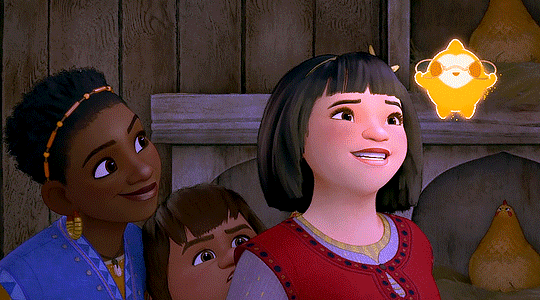
"There are too many characters in this movie!"
Even I've been a bit guilty of thinking this. I still feel as though the film would've saved a lot of space if some aspects of Asha's friend group had been redistributed to other characters. Like okay, you want to reference the Seven Dwarfs in Asha's inner circle, but give them all distinctive personalities? Have her mother fill the Bashful role, and cut Bazeema. Have her grandpa be Happy, and cut Hal. Have Valentino be your Grumpy role, and cut Gabo. Have Star play your Dopey, and cut Dario. Suddenly you only have three characters -- Simon, Safi, and Dahlia -- to introduce in that kitchen scene instead of seven, and you've also now given Asha's mum, grandpa, and sidekicks more personality as well!
That being said, the amount of characters truly isn't the problem. The real problem is time. Because let's be honest, we can ALL think of media with a large cast of characters we've become strongly emotionally invested in. The Lord of the Rings -- The Avengers -- Hazbin Hotel...but the difference is how much time the audience is given to get to know all of these characters. Even Snow White and the Seven Dwarfs, which has a cast of eleven, ends up leaving the Prince and the Huntsman rather underdeveloped compared to the Dwarfs. We don't ever learn the Evil Queen's whole deal or even her name, and she gets a lot of focus! With Wish only being ten minutes longer than Snow White with a cast of fourteen, it's little wonder the filmmakers struggled to have all fourteen of them leave a strong, unique impact. Even when I first watched the film, I didn't feel anything negative toward Asha's friend group -- if anything, I was happy to see a Disney animated female lead with a friend group of her peers, since the closest we'd gotten to that previously was Hiro in Big Hero 6 and Mei in Pixar's Turning Red. All of Asha's friends had the potential to be very interesting people, and that's why it's sad that we didn't get to see more of them and have the chance to become invested in them as individuals.
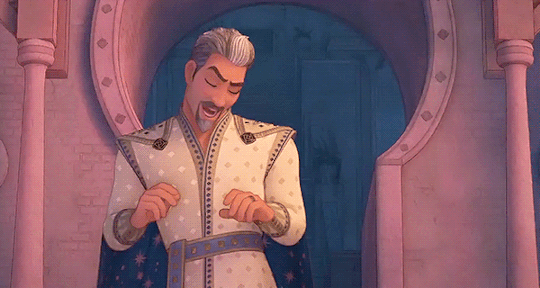
"Magnifico was actually right the whole time! Asha is the REAL villain of the story."
I see this one a lot, both from people who disliked the movie and fans who stan Magnifico, and as much as I won't give anyone a hard time for liking Magnifico, I think this view isn't really fair to either character or to the story the filmmakers pretty clearly wanted to tell. And sadly, as much as I want to be positive, I think this interpretation comes about partly because of inconsistent writing on the filmmakers' parts.
In Welcome to Rosas, there is this utopic vision presented of the island -- one that only reinforces the story told to us at the beginning by Asha, of how this man who loves wishes learned powerful magic so he could found this idyllic island kingdom with his wife where he could make wishes come true. Unfortunately, for some viewers, I think that propaganda works a little too well -- making us see Rosas as a place that truly is that happy and content and peaceful. And yeah, that does make it so that when Asha sings about how she wants "more than this," that could make her come across as rather selfish and entitled. But I think there are a few things that are good to remember --
Welcome to Rosas is framed as an advertisement of sorts -- like one of those commercials you see promoting Disneyland and how magical it is, without ever bringing up how much money it costs or how many lines you'll have to stand in. Asha's guiding some new people around with the goal of convincing them to stay and give their wishes to Magnifico, so of course it's going to sanitize the kingdom and make it seem like a place you'd want to stay in. There's blatant hyperbole thrown in there for dramatic effect, like the idea that you could go to outer space. Asha even sings that you're "unlikely to be unhappy": not that you'll be happy living on this island, just not unhappy. And yes, there is a difference between contentment and true, fulfilling happiness.
Simon's friends flat-out call him boring, after he turned eighteen and gave up his wish. This foreshadows what we learn about the wishes later, which is that they're a core part of a person that they're left a shadow of themselves without. At the wish ceremony later on, we can see this in the animation of the two "new citizens" giving their wishes to Magnifico. When they think of their wishes, they're full to the brim with joy, but when they've given them up, they're left looking confused and almost bereft, and even as everyone else cheers, they look unconvinced by the crowd's cult-like "forget without regret" chant. According to Wish's own canon, you're cutting out the "heart" of who you are, when you give up your wish.
Considering Amaya says that Asha will need to keep the tea hot, listen whenever and for however long Magnifico wants to talk, and never question anything, Magnifico didn't want an apprentice -- that would insinuate he'd actually be teaching them magic. If anything, it sounds more like he wanted a personal servant to cater to his whims. And when that person interviewing before Asha disappoints him, he's left running down the hall crying hysterically. This develops Magnifico as the film's future antagonist. Already long before he uses the evil magic book, we see that he wants a subordinate to do whatever he wants without question or complaint, seemingly for nothing in return except his own approval and, I would presume, some sort of paycheck. (I mean, I'm not saying Asha was right to expect favors from Magnifico so soon, or that that kind of quid-pro-quo stuff isn't corrupt as heck, but considering she and Magnifico did seem to connect over how important the wishes were, and considering Sabino's 100 years old, can you blame Asha for opening up about her hope that Magnifico would consider granting her grandfather's wish? She never framed it as a quid-pro-quo, and this probably would be the best chance she'd have to appeal to the King directly.)
Asha is seventeen! Of course her world view is going to be smaller and more idealistic than Magnifico's, and of course her family is going to be the center of her world. At the same time, even if Asha is young, it doesn't mean her perspective isn't worthy of compassion and respect. Sometimes the young do have a more meaningful view of a situation than their elders -- just look at David Hogg, or Malala Yousafzai, or Greta Thunberg...hell, even Anne Frank! However upset Magnifico was about Asha disagreeing with and contradicting him, it does not justify how pettily he decided to shut her down. He was an adult, and a ruler besides: it behooved him to act like one.
The filmmakers clearly envisioned Magnifico as the villain. Even if you want to ignore the promos where they compared Magnifico to the likes of classic Disney villains, Magnifico is portrayed as an arrogant, vain, vindictive control freak. He thinks only he knows what's best for everyone else, has decreed that only he has the authority to cast magic or grant wishes, and knows how beautiful people's wishes are, but prefers to hoard them away like trinkets, long before realizing that crushing them gives him power. (Not to mention he looked at Asha's hand-drawn animation and actually said, "Do we call that a talent?" I mean -- excuse you!) I've even heard some people theorize that Magnifico was based off Disney's "collect-'em-all" CEO himself, Bob Iger, and not in a flattering way. His main argument scene with Asha has been compared to how creatives have felt about their corporate bosses abruptly shutting down and locking away their incomplete films rather than let them be finished or released. Admittedly Wish also goes out of its way to try to make Magnifico sympathetic by giving him the slightest of tragic backstories, having him actually trust Asha enough to show her the wishes after only just meeting her, and (later on) not giving into the temptation of the random evil magic book because Amaya asks him not to, and that definitely muddies the waters. I still have to stand by the fact, though, that one's motivation doesn't excuse their bad behavior, however much one can explain the other. Magnifico having a sad backstory or trauma doesn't mean he's justified in treating people poorly, collecting wishes for his own enjoyment instead of truly loving them and the people they're attached to by sharing them with others, or not wanting people to ever question him or his authority. Magnifico's "nicer" moments don't mitigate these things either. Nor does his role as king. Even if yes, the story could've done well to add more nuance to the idea of wishes and make clear that not all of them are good -- and yes, the story could've either made Magnifico's villainy a bit more straightforward or followed through with the idea of Magnifico being a misguided anti-villain...in this film, we only see good wishes represented in Rosas. Magnifico even calls the wishes "the very best part [of a person]" -- and so one can only presume that all of the wishes Magnifico's collected are that way. Asha even suggests (before Magnifico interrupts her) that if a wish is dangerous, they could probably address that, while still giving back the wishes Magnifico won't grant. And the wish that Magnifico explicitly calls too "dangerous" to grant is Sabino wanting to inspire future generations, presumably through music. Paranoia on Magnifico's part? Perhaps, but also unjustified, in the context of the film. When Star comes down, every last person in Rosas -- including Magnifico's wife and queen, Amaya, who presumably must know something of his trauma and understand wanting to protect their people -- feels nothing but warmth, hope, and joy: all except for Magnifico, who immediately reacts in fear just seeing the wishes moving outside of his control. This insinuates that Magnifico's perception is the odd one out -- he's the only one who's afraid and not inspired, because that alternative magic threatens his absolute rule and control. Just like he's threatened by his people asking too many questions about the wishes he's taken. Just like he's threatened by the idea that Sabino could inspire the next generation in a way he doesn't approve of. And in the end, if that random evil book did corrupt Magnifico, it only magnified what was already there inside of him -- a greedy, obsessive need to hoard things away all for himself and to control others.
Again, for those people who see Magnifico more sympathetically than the filmmakers intended, I can understand why. Wish has two very conflicting ideas of who Magnifico is supposed to be, likely because it was compiled from dramatically different script drafts. But I feel demonizing Asha or ignoring the film's overall message about the value of people being free to chase their dreams to try to prop Magnifico up is misguided.

"Wish is bad because it's 'woke.'"
I almost wonder if I even need to say anything. This sentiment is so disingenuous, it seems like I should really be able to let it speak for itself. Ironically enough, though, I would actually argue that one of Wish's biggest shortcomings is that it isn't as revolutionary as it clearly wants to be.
For one, the culture of Rosas -- inspired largely by Spain and the Mediterranean -- is really never explored. We get no real influence of either of those cultures on the soundtrack aside from a few mandolins and a flourish of castanets now and again, unlike how Encanto embraces Colombia or how The Princess and the Frog celebrates New Orleans with their music. There's a lot of diversity in Wish's cast with a biracial lead and her colorful friend group (including Dahlia, who has a crutch!), but that would be a lot more meaningful if that diverse cast of characters had had fully fleshed-out personalities and relationships that made us emotionally invested in them, such as how Turning Red handled Mei and her friend group. We have aspects of social justice in Wish's storyline, sure -- but as much as you can draw parallels to Wish's story and the writers' strike that had been going on earlier that year and I think those parallels are striking, a film that clearly dealt with so much corporate oversight and meddling almost couldn't commit to making their villain a True Evil sort, and in the end, Rosas doesn't even do away with the absolute monarchy at the end of their supposed "revolution": it just shifts leadership from its King to its Queen. (And yes, I acknowledge saying "no more royalty" is a message that Disney, of all companies, would be hesitant to put out there, but you can't deny, it would've been both ballsy and different.)
Does this mean Bob Iger was right, that Wish is proof its creative types are focusing too much on message and not on entertainment? No. I'd say the bigger problems with the film were more likely caused by corporate interference -- you know, like hiring some popular pop composers to write songs that can be repackaged into other projects easily rather than primarily tell the story and develop the characters. Or deciding that our main female lead has to be able to do everything on her own without "too much help" from her main co-star (LOL, pun) because "feminism." Or defanging the villain with similarities to the company's CEO so he won't scare the kiddos. Or even animating the film at the exact same time as you're writing it like you previously did with Frozen II, to save time and take advantage of the 100th anniversary timing.
Even so, I sadly can't help but feel that Wish is "woke" largely in a performative sense. It features people who look different from each other and it talks about revolution and positive change, but it really doesn't go far enough to depict diversity in a way that people can get really excited about it or inspire deep thought and even maybe positive change in its audience. That's not focusing too much on message and not on entertainment -- if anything, it's more indicative of not giving the relevant and timely themes and the diverse culture enough focus.
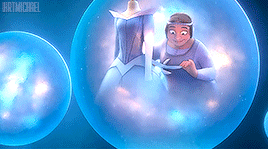
"The meta Disney references are awful."
This one I think really is much more subject to personal taste. I've heard quite a few fans say how fun it is to find all the Easter eggs for other Disney projects or even to theorize how Wish could be connected to those movies in some kind of Disney Cinematic Universe. Personally I'm not in this camp, but that doesn't mean that I hate all the references included. The film opening with the exact same kind of text from Snow White and the Seven Dwarfs actually made me smile. The Sleeping Beauty-esque drawing style in the storybook was pretty. Even the Seven Friends as an idea I thought was cute, when I first saw the concept art for them.
By and large, the references I tend to see more favorably are the ones only hard-core Disney/animation fans would pick up on. This might make me sound snooty, but I still personally enjoy references like Star's design being based on one of the star cherubs from a discarded Snow White sequence far more than I do the more blatant ones like Magnifico crushing a dream about a "perfect nanny" or the boy dressed like Rosasbound!Peter Pan. I guess for me, the first kind of references feel more like homages, rather than things that are deliberately supposed to make you think of other Disney movies you could be watching instead of this one. For other people, though, thinking of different Disney films while watching Wish is fun, and it reminds them of how much they enjoy those other movies too. It's good, clean, nostalgic entertainment. And well, Disney has put plenty of Easter eggs in its work before, though usually a bit more sparingly.
So yeah, I think ragging on the flood of Disney Easter Eggs in Wish is a bit unfair. As much as most of them aren't for me and I would've been happier with a lot less of them, I know there are other people who find joy in them, and I'm happy they do. The animators working on this film undoubtedly had a lot of fun including those references too, and I don't blame them! It's fun to create art celebrating what you love with like-minded people.
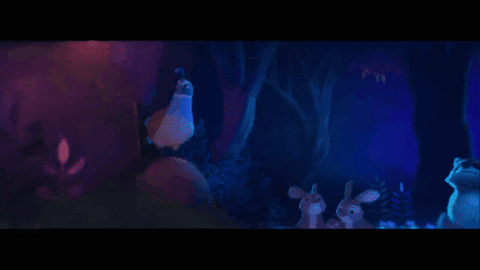
"Wish's songs are all terribly written."
Now up to a certain point, I could just say exactly what I said against the last criticism -- that this really comes down to personal opinion. Unlike meta Easter eggs, however, music is an art form, and there is real craftsmanship to it -- hell, people study music theory for a reason. And as several Youtubers have discussed before, there are real structural problems to how a lot of these songs are written. In some cases, it's an issue of cadence, where the way the words are sung don't sound like how they'd be naturally spoken aloud. In Knowing What I Know Now, for instance, sometimes the singers use the wrong emphasis on certain words, just based on where they land in the song, such as when Asha sings about Magnifico showing his "TRUE col-ORS in SHADES of GREEN," even if people don't naturally emphasize the second syllable in the word "colors." In other cases, it's over-stuffing a line with words so that the melody line isn't as memorable, such as in This Wish where the amount of syllables per line are all over the place and sentences get cut in weird places --
Isn't truth supposed to set you free? (9)
Well, why do I feel so weighed down by it? (10)
If I could show them everything I've seen, (10)
Open their eyes to all the lies, then (9)
Would they change their minds like I did? (8)
But when I speak, they tell me, "Sit down!" (9)
But how can I when I've already started runnin'? (8)
Oh, this is where we've been, (6)
But it's not where we belong, (7)
And I may be young, but I know I'm not wrong... (11)
There are also cases where the songs barely use any actual rhymes in favor of half-rhymes or worse twist themselves into pretzels just to make an actual rhyme, such as in I'm a Star, with lines such as "When it comes to the universe we're all shareholders // Get that through your system! (Solar!)" and "Ooh, I'm a star! // Watch out, world, here I are!" (Excuse me while I cringe.) And then of course, most infamously, there are the redundant and otherwise weird lyric choices, most commonly cited in Magnifico's And This is The Thanks I Get?!, such as "I got these genes from outer space!" and "I let you live here for free and I don't even charge you rent!"
By and large, people have not responded as well to Wish's soundtrack as they have for many other Disney musicals. It could also be argued that the songs don't tell the film's story as well as they could've. The most egregious example of this is At All Costs, which is supposed to be our villain and hero singing about the beauty of the wishes the first has collected, but was literally written as a love song first, just because Julia Michaels wanted to write a song that could be played at people's weddings even if the movie in question didn't feature any romance. Even This Wish was written well before the script was finished, and this is when we can tell from all the concept art released by Disney that this movie had been dramatically rewritten at multiple stages of development.
And yet even with this, I still see people making animatics for At All Costs featuring their own characters or Asha and the discarded Starboy concept. (And yes, we'll come back to that.) I still see fan-made music videos featuring This Wish. Hell, even I have some of Wish's songs on my IPhone, and I listen to them actively! Knowing What I Know Now, as much as I see what's technically wrong with it, is still a bop for me. However much I had to take a full-on sanity break after listening to I'm a Star a second time, I do enjoy This Wish and At All Costs, just on their own. I don't think This Wish (reprise) is a bad musical or thematic climax, especially if one considers Magnifico's fear that Sabino's wish was to inspire the next generation through music, and it ends up being a song -- sung by his loving granddaughter -- that ultimately defeats our antagonist. I don't think any of Wish's songs really help tell the story as well as other Disney songs do for their films, but I still think there's room for personal taste here. Music -- like all art -- still has an element of subjectivity. It isn't a science -- yes, there is talent and skill involved that can only be mastered with practice and hard work, but there's still a bit of magic that comes with the finished result, and as much as it might not be popular with the masses, that doesn't necessarily make something worthless, or that public consensus can't change. Tchaikovsky famously hated the work he did for The Nutcracker, as did the critics of his day, only for it to go on to become a staple of holiday entertainment and ballet productions overall. Plenty of cult classic films like Labyrinth and Heathers didn't make a lot of money or get lots of praise when they first came out, but soon enough they found their audience.
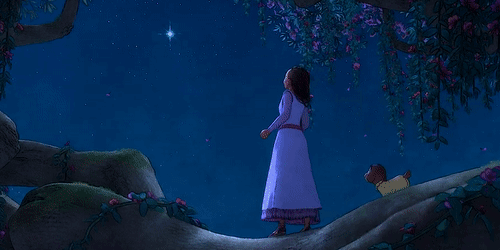
"The animation is lazy!"
There's actually a much better video discussing this, made by a real professional animator, and I think I'll just let him handle this.
youtube
One thing I want to touch on, though, is Jennifer Lee's commentary about why Wish ultimately wasn't done in 2D animation --
"What happens in hand-drawn is that you have the incredible hand of the artist, but also limitations in what you could do on screen. What happened in CG is you'd have incredible, boundless opportunities, visually, that elevated it — even to the point for some — into realism, which is not what we wanted to do. The more important thing to us was to have a way to find technology that can do everything. Connect to the true vision of the artist, but bring in technology that could finally take away limitations."
-- and yeah, I'm not going to lie, this sentiment leaves a really bad taste in my mouth. The idea that hand-drawn animation somehow limits what art you can create is mind-boggling for anyone working in animation to think, but especially for someone working in Disney animation. I can't help but feel like Uncle Walt would've been ticked if he'd heard anyone suggest this. Anyone who loves animation I think would be annoyed by it, and I'd say people like Hayao Miyazaki continue to prove that Lee's thought process isn't true, considering that his hand-drawn film won the Oscar for Best Animated Feature the same year that Lee's Wish was passed over by the Academy altogether. To be fair, though, this is more a reflection on certain Disney leaders' dismissive attitude toward the medium that built their company as well as the vast majority of the films they're supposedly celebrating, rather than any condemnation of the hard-working animators who worked on Wish. And yes, although no one can argue that Wish ultimately doesn't look as good as its animated peers like Sony's Spiderman: Across the Spiderverse (which was made with half the budget Wish was), that's more the fault of a flawed vision on the part of the filmmakers than anything. It's certainly not indicative of a lack of talent, resources, or caring from the animators themselves.
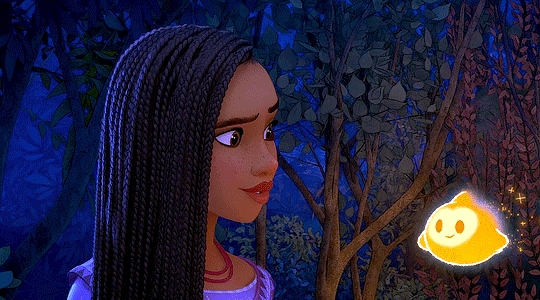
"Wish would've been so much better if it had featured a love story between Starboy and Asha!"
Okay, let me pop this bubble right now --
None of Disney's official releases have ever indicated Star was going to be Asha's love interest.
The concept art featuring Asha and human!Star? Yeah, that exists, but there's nothing strictly romantic in any of those concepts, like them kissing or even hugging. At All Costs originally supposedly being a love song for Asha and Star? As touched on above, nope, it was even more of a cynical corporate decision than that -- the songwriters just wanted to write a love song that they could repackage and use elsewhere, even if there was no love story to go with it. The thing about Asha and Star supposedly being soulmates? That's derived from a comment in the artbook from Wish co-writer Allison Moore, talking about Asha and Star in their current forms, and so therefore the sentiment was intended platonically --
"Now Star and Asha have an emotional journey. They are soulmates."
And well, just based on a good chunk of the Disney animated films that had come out prior to Wish featuring male and female leads -- Zootopia, Moana, Big Hero 6, Wreck-It-Ralph -- there was really nothing definitive to suggest that our two central characters were going to be romantically linked. And even if Star and Asha were going to be love interests, that still would've been no guarantee of a better movie -- you'd still need compelling, well-developed characters, if you want to likewise have a compelling, well-developed relationship between them. And as I've argued in the past, a movie doesn't need romance to be good. If someone could feel sincere platonic love between Star and Asha as their actual movie selves, then any romance between them wouldn't be needed. I truly believe the only reason that so many people have gotten so hung up on the idea of a Star/Asha romance is because that original platonic "soulmates" idea Allison Moore and others envisioned just didn't ring true for them. They saw more love and interesting chemistry between the original concept art versions of Star and Asha than they did between any of the characters in the finished film...and so they've built upon those flickers of love with their own imagination and then built that mental image up into something that I don't think the filmmakers probably ever intended.
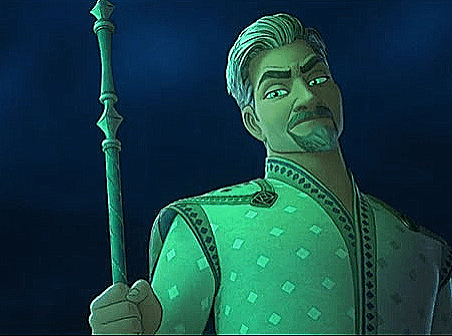
I must be honest, it was kind of a slog, watching Wish for a second time. I stopped multiple times to take notes, unable to just sit back and let the movie wash over me. Even so, I truly appreciate how much time you must've spent to skim through this way-too-long analysis, as well as the votes you all cast in that one poll of mine! I love analyzing Disney, and as much as I don't love Wish, I do think it provided great fodder for new fan creations and has amazing potential as an educational tool about both good storytelling and film-making. And if there are more criticisms of Wish you'd like me to discuss, please feel free to reblog this post with them! Thank you for your support!
To close us out...if you love Wish, then keep on loving it! Don't let anyone -- including me -- tell you otherwise. I don't think a film that was truly the worst thing ever would've attracted as much attention or overanalyzing as Wish has received. And for those of you who are still dissatisfied with Wish, here's a list of films I compiled that you can watch and enjoy instead!
For Starboy/Asha stans...Stardust!
For both Starboy and Chris Pine stans...Rise of the Guardians!
For those of you who love the idea of storytelling magic...Whisper of the Heart!
For those of you hungry for a diversely cast, "woke" fairy tale...Rodgers and Hammerstein’s Cinderella (1997)!
For people looking for a colorful, family-friendly musical...Wonka!
For avant-garde animation fans...Guillermo Del Toro’s Pinocchio!
For modern CG animation fans...Puss in Boots: The Last Wish!
And finally, probably most obviously -- for those Disney fans looking for a loving tribute to 100 years of Disney Animation with a bunch of Easter Eggs and good humor...Once Upon a Studio!
Much love to you all! 💛
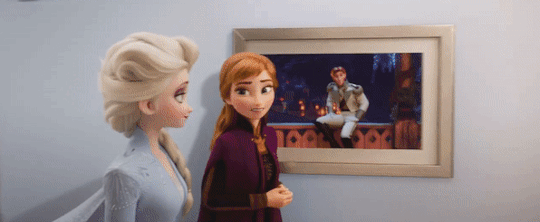
35 notes
·
View notes
Text
Camilo Analysis
Bruh, who even is Camilo? He is arguably the Madrigal we get the least real characterization for, other than Teenage Boy, which is a very broad category of person. So as per usual, it helps me to get my thoughts in order if I write this stuff down.
First, Mirabel introduces Camilo through song and we right of way see him shapeshift into a young mother so he can sooth her baby while she takes a nap. That's actually a really great way to imply several things about his character (oh my god guys, this movie is so well written).
Thoughtful enough to offer a new mom a chance to rest
Comfortable caring for infants (probs helped care for Antonio?)
More patient than I would have thought, because taking care of a baby while the mother rests is not a quick and easy favor
Sort of implies that he likes kids
Then Mirabel sings he "won't stop until he makes you smile today" while he turns into multiple people and doing goofy stuff. Everybody already knows he's an entertainer at heart but I gotta add it to the list anyways.
5. Likes making people laugh
6. Plays around with his gift a lot
Moving on to Antonio's party, he's the guy greeting all the villagers by name, and he changes his energy to match each person.
7. Knows a lot of the villagers
8. Charming and personable
9. Respects his elders (kisses the old woman on the cheek)
He jokes around with Antonio, probably in an attempt to soothe his nerves, and teases his Pa. This reinforces points one, four, five and six. If this was a different list, I would talk about what it means that Camilo is clearly comfortable teasing his father, despite the seemingly stern reaction Félix has, but I digress.
He stands with Julieta while Antonio and Mirabel walk to the door, giving birth to a lot headcanons about them being especially close, and I'm going to roll with it.
10. Of his siblings, he's closest to Julieta.
Then he's very excited for Antonio as he discovers his room, it's actually the happiest we see him in the movie (other than perhaps when he's dancing in We Don't Talk About Bruno). So:
11. Supportive? Or maybe just enjoys seeing other people happy?
Plot happens, fast forward to breakfast when he pretends to be Dolores so he can get double the food. Then teases Isabela about Mariano, something he does a lot in the movie.
12. Likes food.
13. In his Little Shit era
Fast forward some more, all the way to We Don't Talk About Bruno. He absolutely kills it, and clearly enjoys the whole production. If you're like me and you headcanon that the musical numbers happen in universe then we can conclude:
13.5. Fucking loves living in a musical
And if you headcanon they don't:
14. Enjoys telling stories.
15. Probably hasn't thought through the consequences of telling everybody his Tío is a seven foot tall boogy man that feasts on screams. Which is very normal for a fifteen year old boy.
Teases Isabela about Mariano again. More plot happens. Time For Dinner. Dolores gossips to him as soon as she can, then he immediately gossips to his Pá. When Félix accidentally spits his drink onto Mariano, Camilo has to hold in a laugh. It's possible he doesn't really like Mariano, he keeps making jokes about the guy, at the very least he doesn't take him seriously. I wonder if he's the sort of guy that prefers to hang out with women?
16. Close to his sister.
17. Close to his father.
18. Shapeshifts reflexively/accidentally.
More plot. We see him try to soothe his mother.
19. Takes care of his Má. Pepa is literally unable to hide her emotions, so it would make sense that, through no real fault of her own, the kids slowly learn to take care of her as they grow up. The squeaky wheel gets the grease and all. On the flip side, the fact that sun beams come out whenever they get home from school or learn a new skill probs means the kids can never doubt that Pepa loves them. Plus, she likely has the easiest time transitioning from a parent-child relationship to a parent-adult offspring relationship of all the adults. So Camilo might be growing closer to his Má as he gets closer to adulthood.
The longer the plot goes on the less we see him. He's clearly frustrated with his gift glitching on him, but that doesn't really tell me much. It's a situation that would frustrate anyone and they don't show us how he handles those negative emotions. They also don't show us how he handles hearing the end of Mirabel's and Abuela's argument. Rude. They do show us him leaping to the candle's aid while the house crashes down around him so clearly:
20. Sees the Miracle as more important than his own safety.
The house falls, the candle goes out, in the background we hear him first remark on his gift being gone, then wonder how this will effect his little brother. We already know he enjoys using his gift, I can theorize he's made Being a Shapeshifter an important part of his identity, but all we have that's concrete is:
21: He doesn't just enjoy his gift, it is important to him.
22. Empathetic.
Mirabel runs off, resolution happens, Mirabel comes back. He is the one who cuts through the reunion to point out their house is gone, and even gets a little exasperated when he catches a bit of flack from Félix.
23. Not an optimist. Might be a pessimist, but most likely just not particularly sentimental.
For the rest of the scene he exists in a state of confusion. The hits start coming and they don't stop coming. Apparently Tío Bruno is just suddenly back now? And it kind of seems like half the family isn't surprised or asking any questions?! There's not a lot of conclusions I can draw from him being shocked and confused that Bruno just sort of appeared out of nowhere, I think most people would be. And unlike the parents or the older cousins, he doesn't have enough memories from when Bruno was around to be swept up in the joy of seeing him again. His reaction is relatable and endearing, but not very revealing.
The last character moment we get is when he tries to twirl the shovel around all fancy, almost drops it, then checks to make sure Mirabel wasn't watching. It reinforces things already mentioned, like him being showy, and wanting to entertain those around him, but also:
24. Wants to be seen as cool. Another very normal trait for a teenage boy.
It is interesting that the first person he looks at is Mirabel, I can't help but wonder if that would have been the case at the beginning of the movie. There's room for interpretation there, but regardless, by the end of the movie:
25. Respects Mirabel's opinion.
49 notes
·
View notes
Text
Encanto: Madrigal Family Relationship Analysis Part 21 - Isabela and Dolores
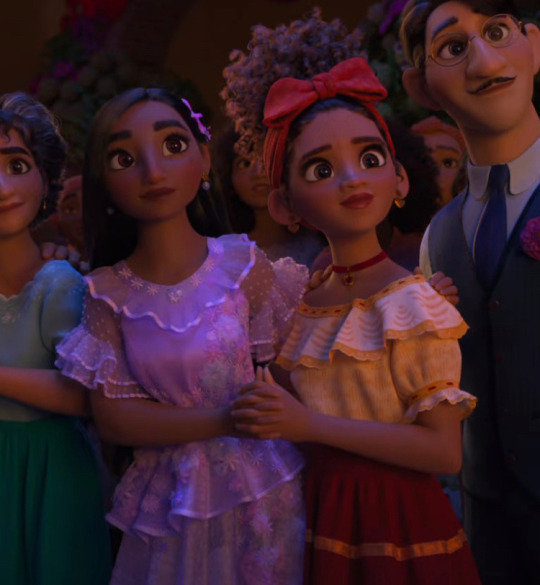
An often understated dynamic that deserves attention given the untapped potential of both a deep bond with undercurrents of tension. As seen in the above image, Isabela is being physically comforting and affectionate with Dolores; something she’s seen rarely doing on-screen with other family members. This shows how Isabela is possibly the most vulnerable and open with Dolores of her entire family and it makes sense given how they were born in the same month and had each other before their respective siblings. I can see Isabela greatly respecting Dolores and being open and honest with her, trusting the latter not to think of her as the “perfect one”. And Dolores, while she does respect and love her older cousin, she also is able to point out Isabela’s complex character more so than most her family; and similar to Isabela’s relationship with Luisa (as described in this post), if Dolores ever called out Isabela for her attitude/actions (which she will do without hesitation), Isabela would take her words to heart. Jared Bush stated their relationship as “complex” with Dolores being in Isabela’s shadow, and here is where I think that part means - Dolores may have some insecurity with always being second to Isa, often feeling overlooked and underappreciated, but doesn’t take it out on her cousin (the worst being sly jokes), knowing that despite Isabela’s aloof nature, she’s a good person through and through, and understands her feelings. All in all, their relationship is one of mutual respect and understanding but has tensions from the whole “always being second best and the one who is considered the best is unaware”. In future installments, I think they may have a heart-to-heart about their feelings on the situation.
#disney#encanto#isabela madrigal#dolores madrigal#madrigal cousins#brotp#brotp analysis#madrigal family relationship analysis#my posts#mybrotps#links
14 notes
·
View notes
Text
Encantober Day 3: Tragedy
I wrote this somewhat quickly based on a slew of thoughts I’ve been holding in for a while, so I’m sorry if certain parts aren’t as clear as they should be! Using a “read more” cut for now to make editing easier. @encantober-official
Back when I wrote this scene analysis, I didn’t realize I was going to be addressing the question of why Bruno didn’t just talk to anyone about the vision before he left. Going to another adult family member—if not his mamá, then Julieta, or Agustín, someone—seems like such an obvious thing to do, and because he didn’t do it, an obvious failure, perhaps.
But I feel like it actually makes sense within the story and family dynamics. One of the core issues the Madrigals struggle with is communication. The lack of communication. And the lack of listening, or of seeing (which is one of the themes of the film, along with generational trauma... more on that below). It’s a lesson they all need to learn.
I think I’ve used the word “tragedy”/“tragic” to describe the circumstances surrounding and leading up to Bruno’s decision to leave as well as his ten years of isolation in the walls. A word like that can be vague. What it feels like is a painful knot, a quagmire, a sense of being trapped. Here, I’m not trying to tackle the morality of Bruno’s actions, or judge them. But to really understand why things happened the way they did, and how it’s a part of the larger family pattern. Because it’s highly probable that it never even crossed Bruno’s mind to say anything because that’s just not what the family does. Or that it did cross his mind, and he dismissed it because, based on learned experience, that’s just not what the family does. They “Don’t Talk About Bruno”... Or Anything, Really. Especially not when it comes to the miracle or their Gifts or their role in the Encanto. They’re not allowed ...to express anything other than gratitude and humility toward their miracle.
Their communication issues run deep and across the generations. In another example, Isabela never communicates (learns to never communicate) anything about her own unhappiness. Luisa doesn’t open up about her stress. (Notably, these are things the protagonist learns about over the course of her own journey to see her family and herself, get everyone to acknowledge the past and present, and bring them all to an important crossroads... From “The Family Madrigal” to “All Of You,” it’s a pretty amazing journey.)
Moreover, several of the family members are shown to be “grinning and bearing it.” Starting with Alma, of course, who has to put on a strong face for her babies and her new, vulnerable community of refugees. Her own tragedy suppressed and unacknowledged, un-communicated (preverbal, as trauma so often is). Then there’s Pepa, Isabela and Luisa again, Dolores, Mirabel, the list goes on. Even if we don’t actually see their experiences onscreen, I’m positive we could list all the characters.
“I’m fine, totally fine.” / “The magic’s fine. Luisa’s fine.” / “Clear skies.”
So, maybe all this is a way to set up an understanding of Bruno’s actions when we finally meet him and see/hear about them via the flashback. It’s no wonder Bruno doesn’t communicate and instead goes it alone (”grinning and bearing it” for ten years, or for a lifetime, as he anticipated). Though, given the chronological timeline, is it possible to argue that Bruno’s decision actually helped set, or at least helped solidify, the precedence/pattern of non-communication and denial later practiced by the younger generation? Perhaps. But I also think that every example in the film, presented to us “out of order” (with Bruno’s history being shown to us in the middle of the story), is meant to strengthen the others, to demonstrate the theme of generational trauma.
Without making it sound like I think the characters are helpless, to escape or make a different choice, I’d say they are trapped in a cycle. But then again, maybe that’s what Encanto is saying, and showing: Trauma is Like That, catching you up in a whirlpool, rippling outwards, but with the possibility, the hope, of disrupting unhealthy patterns. Which Mirabel Does. And what we see in most of the movie isn’t quite the defiance of the cycle but the unhealthy patterns and the mistakes themselves, some of them much more harmful than others. Characters who are victims of trauma, and the cycle of trauma, as well as its perpetuators, until they finally start to break free of their cocoons.
. . .
This next part is kind of an aside, since I think I just wrapped up the main part of this post:
Speaking of being trapped... What of Bruno’s own thoughts and motivation on the matter of leaving? His own observation of the family dynamic, and his place in it? His agency? Wouldn’t Bruno, shouldn’t he, have had the ability, the will, to defy his mamá? Is he weak, cowardly, because he didn’t or couldn’t? There is so much to unpack here, which I’ll save for another post.
What I don’t think is that his was a choice made by a singularly troubled mind. It is, however, a concrete and extreme (dire) example of the dysfunction in the family’s system, the cracks in the walls, the layers of misunderstanding. I believe the filmmakers discussed on a podcast that one of Bruno’s roles was to put the fear in Mirabel that being ostracized from the family is something that could happen to her. Bruno, what happens to him (the black sheep, the identified patient, the “other”), is as symbolic as it is a real event in this family drama.
His going into the walls is a tragedy, too. I feel for him a lot, in the way he wants to stay close to his family, connected to them, even if being a part of them is a source of pain. It makes sense from a cultural perspective too. Familia es todo. How can he really and truly leave something of such deep and central value? This, too, makes sense to me, and is also as symbolic as it is a real event in the family drama.
#encanto#encantober#bruno madrigal#mirabel madrigal#alma madrigal#generational trauma#pepa madrigal#isabela madrigal#luisa madrigal#my writing#stuff i've posted#i think this got away from me#i'm also still not feeling well#so some of this feels like fever brain writing lol#it's not that bad - mind is just foggy)
34 notes
·
View notes
Note
For your "Madrigal's reaction to Brumira" or whatever it was called, I'm surprised none of the family, to some extent, blamed themselves for such a thing happening. I could totally see at least a few of them wondering if things would be different if they hadn't treated both Bruno and Mirabelle the way they did in the past.
I also feel like there might have been more pushback against the more dire, severe consequences from the Madrigals who likely knew or at least guessed at what was happening, depending on how powerful their specific gifts are, even if they don't actually support Bruno and Mirabelle, and are just neutral.
I apologize for the delayed answer. I had to read through that post again. Link to the post for context.
You raise some good points. The post itself is squarely in the headcanon/fanfiction space of character analysis, so it's wildly speculative and comes down to preference in how one might like to see everything play out. That being said, if the Madrigal family found out Bruno and Mirabel were romantically involved, it would be a very complicated fall-out. More complicated than I would have time to get into in any one post.
If you wanted to be hyper-realistic about it, I think you could write a full-length novel several times over to really explore what is going on in each family member's mind. So yes, I agree, there's definitely a lot more that would happen if Brumira happened and the Madrigals found out.
So let's explore the two points you raise a little more in-depth.
Self-Blaming
To an extent, the Madrigal adults would be blaming themselves. But it's more complicated than that, and putting the blame onto oneself is uncomfortable. And it is something we don't see the Madrigal adults do well in the film.
Sure, we get the Disney ending of Alma acknowledging her part in the collective traumatizing of her family, and we've got the Madrigals acknowledging that they are family unit, so they each played into that cycle/system. But the reality of generational trauma is so much more complicated than that, and recovering from complex trauma is not typically linear. So if we're going to be realistic about this, we can't expect these freshly recovering family members to sit in self-blame for too long, especially if self-blame wasn't part of their original role.
Alma never blamed herself until after the climax of the movie. Julieta felt some responsibility over the trajectory of Mirabel's role in the family, but it doesn't seem like she or Pepa felt too at fault with Bruno's estrangement. Augustin admittedly is a little harder for me to read (because I haven't watched the movie in a bit), but from what I remember, he was upholding the status quo that Alma set and encouraged Mirabel to do the same.
That is to say, none of the the adults who probably do share some of the blame for setting up the 'ideal' conditions for Brumira to occur are used to accepting blame.
That denial Pepa and Julieta are experiencing? That shame Alma is flooded with? That anger and sense of betrayal Augustin is feeling? That's all their way to process the bomb that is Brumira. It's also a really good way to avoid that nagging thought about what role they might have had in all of this. So yes, they probably do blame themselves deep down, but it is not something I imagine would be at the forefront for any of them. Not primarily, at least.
I suppose if anyone is going to be blaming themselves about Mirabel and Bruno, it would probably be the wrong people. Like Luisa and Isabela.
(Well, Isabela may have more actively estranged Mirabel, but considering the context of the film, it's harder to put real blame on the Madrigal grandchildren, in my opinion. I guess if we're rating things, Isabela is next in line for perpetuating the family cycles as oldest grandchild, but I think I'm losing sight of your original point.)
Anyway, I could absolutely see Luisa incorrectly blaming herself. Self-blame was part of her role.
I guess my point is that the strain of discovering Mirabel and Bruno are a couple would likely catapult many of the Madrigals back to their pre-movie roles.
Madrigals' Push-back in Defense of Brumira
I embarrassingly completely misunderstood your second point and didn't realize it until after I had already typed out a response for it. I'll probably post that separately because it was fun, but I'll get to what you actually asked now.
So yes, I agree with you. In my head the Madrigals who are neutral to Mirabruno would find their ways to push back against Alma's sentences for Mirabel and Bruno.
The Madrigals who would be helping our couple in this AU are Luisa, Isabela, and Dolores. Isabela and Luisa's help would be somewhat delayed because they are close to Alma and their parents, and therefore, they would be trusted to be a part of enacting the sentence. Ultimately, Isabela and Luisa are conflicted about the whole thing, but I think eventually they would come around to Mirabel's side. Especially when they see the toll everything is taking on their sister.
But, they would have to lay low and strategize first for this to work, and then they would have to work to build back Mirabel's trust.
I think Dolores and Mariano would be working as messengers for Mirabel and Bruno. Dolores would definitely know where Bruno is, and she would probably send Isabela, Mariano, and Luisa to check on him when they can manage it. In this way, Isabela and Luisa will probably be the ones eventually passing the messages to Mirabel and Bruno. But, again, it just might take some time for everyone to get to that point.
To add further complication, I think most of the Madrigals helping Bruno and Mirabel would still want to figure out how to resolve this to a point where Bruno and Mirabel be rejoin the family as a couple. It might not be realistic, but it would definitely affect what type of help they think they can offer to Mirabel and Bruno, which is why I think Luisa in particular would struggle with letting Mirabel run away.
Mirabel running away to Bruno would effectively mean the family is broken for real. I think Isabela, Luisa, and Dolores would all want to prevent that. They would want a way for all of their family members to still be a part of their lives, impossible as that may be.
Thank you for the ask! It was fun thinking about and exploring this AU again. I should do it more often.
#mirabruno#madrigalcest#brumira#mirabel x bruno#brunibel#bruno x mirabel#family weirdos headcanons#angst#stalker-among-the-stars#asks#atws#family weirdos#c
14 notes
·
View notes
Text

I posted 5,300 times in 2022
That's 5,150 more posts than 2021!
700 posts created (13%)
4,600 posts reblogged (87%)
Blogs I reblogged the most:
@princie33
@ajolote-mexicano
@naoko-world
@immabethehero
I tagged 3,632 of my posts in 2022
Only 31% of my posts had no tags
#encanto - 1,659 posts
#bruno madrigal - 1,293 posts
#tio bruno - 282 posts
#julieta madrigal - 216 posts
#pepa madrigal - 204 posts
#mirabel madrigal - 182 posts
#disney - 167 posts
#pokémon - 92 posts
#cats - 89 posts
#isabela madrigal - 86 posts
Longest Tag: 138 characters
#also the fandom en español has been theorizing about his body tyoe for a while and there was a running joke about him having a puppy belly
My Top Posts in 2022:
#5


654 notes - Posted March 20, 2022
#4
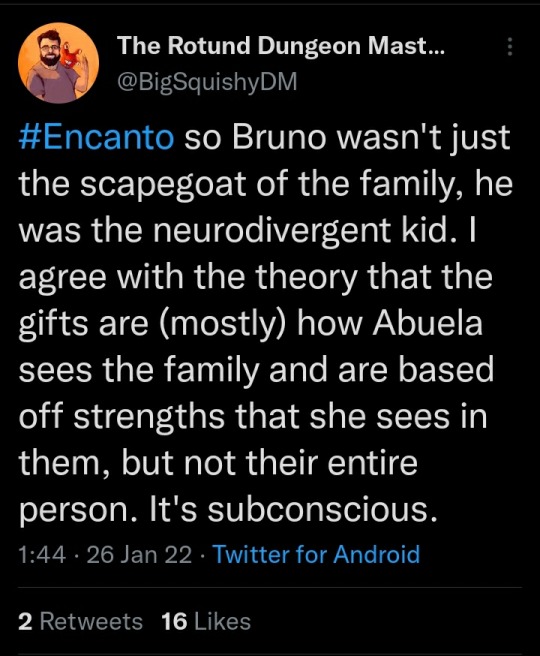
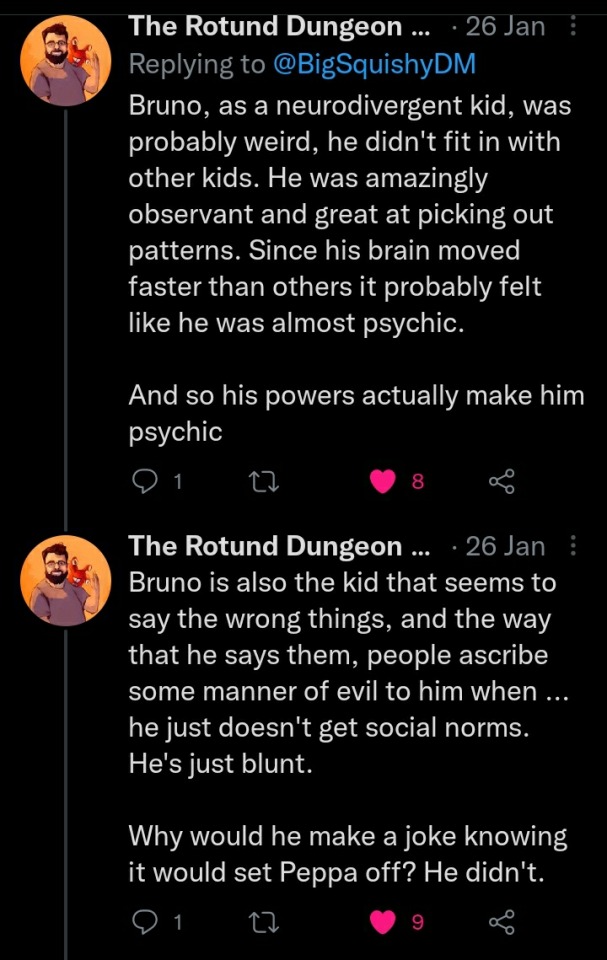
See the full post
659 notes - Posted April 3, 2022
#3
So with all the encanto analysis stuff I'm kinda surprised I haven't seen people talk about this yet. 😅
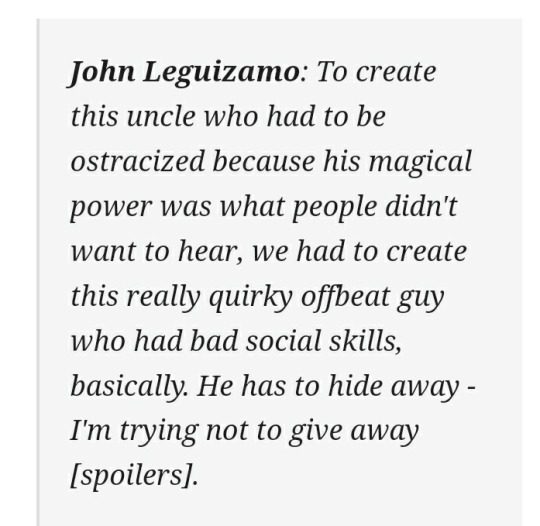
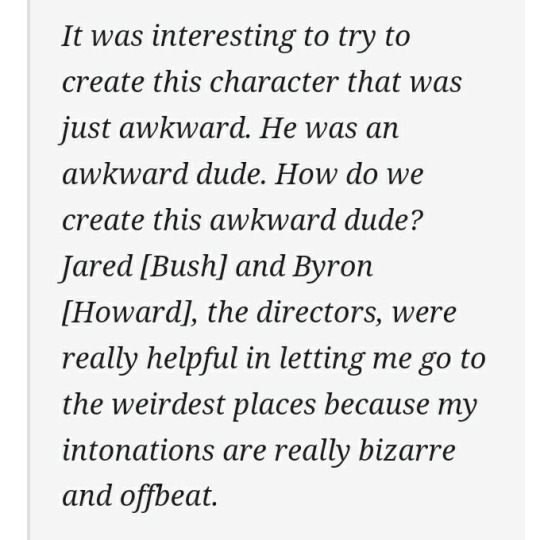
See the full post
718 notes - Posted February 13, 2022
#2
holy crap they did it :0
facebook page
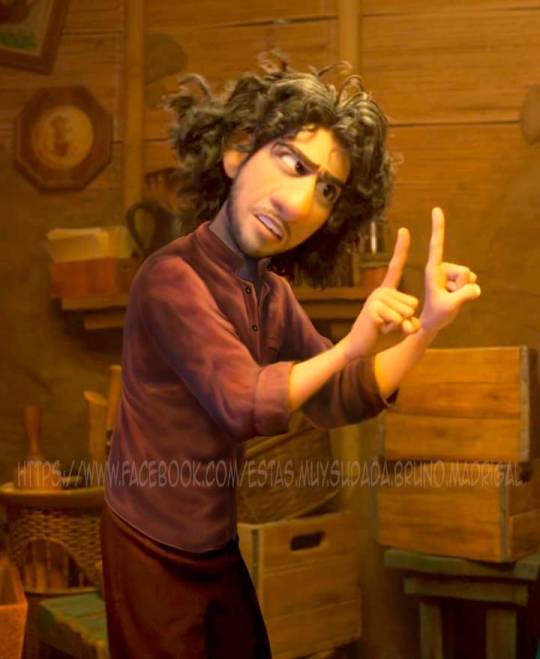
Part 2
Part 3
Part 4
854 notes - Posted May 2, 2022
My #1 post of 2022
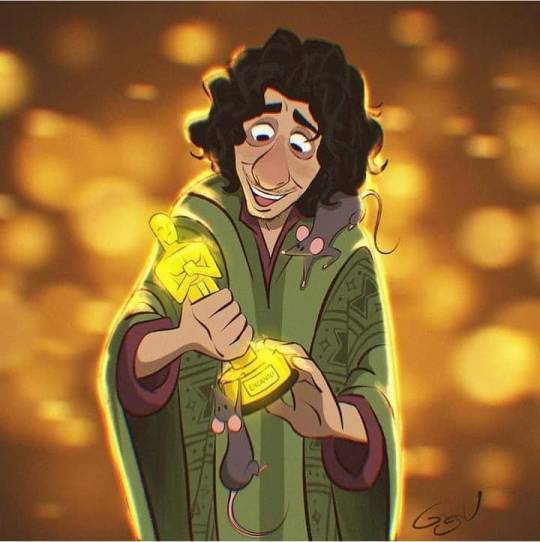
Bruno winning an Oscar
Art by Greg Verreault
2,369 notes - Posted March 27, 2022
Get your Tumblr 2022 Year in Review →
3 notes
·
View notes
Text

I posted 5,451 times in 2022
That's 5,451 more posts than 2021!
668 posts created (12%)
4,783 posts reblogged (88%)
Blogs I reblogged the most:
@omgcheez (Like of course)
@encantoisawesome
@immabethehero
@neon-green-eyes (Of course)
@sleeplessdreamer14
I tagged 4,163 of my posts in 2022
Only 24% of my posts had no tags
#encanto - 2,468 posts
#bruno madrigal - 1,628 posts
#encanto fanart - 805 posts
#mirabel madrigal - 534 posts
#fanart - 480 posts
#pepa madrigal - 392 posts
#julieta madrigal - 384 posts
#bruno fanart - 285 posts
#isabela madrigal - 264 posts
#camilo madrigal - 257 posts
(I guess we can see where my interests goes XD
Longest Tag: 115 characters
#they'd argue about me being queer like some people thinking i'm straight and some others thinking i'm totally queer
My Top Posts in 2022:
#5
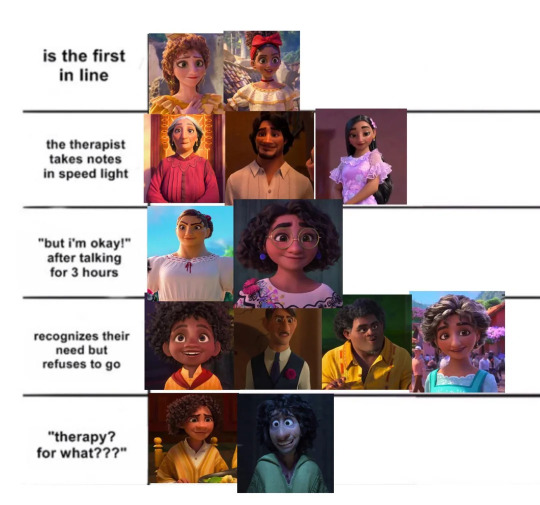
OMG I love it! Yeah they all need therapy but not all of them would agree to go. Don't be shy! Seeing a therapist isn't sooo bad!
Oh and... Fic ideaaaa!!!!
(Which I ended up writing! 3 chapters for now!)
289 notes - Posted May 28, 2022
#4
Analysis: Disney Princesses were never bad role models
Like a lot of people I grew up with Disney movies. Snow White even gave me my love of apples (true story!). My favorite was Beauty and the Beast because I thought "Belle looks like me and we are fond of the same thing." Even so, like an awful lot of people I thought the Disney princesses were weak girls only waiting for Prince Charming to save them without doing anything to help their situation.
I was wrong though: Disney Princesses were never weak or dumb! They're great characters with deep and various personalities! I'm here to argue that point to you in analysing the old ones + Ariel because she's known as the first strong one + Rapunzel because she's an interesting case.
Sorry, it's a really long essay... And thank you to my proofreader for proofreading it this time, you're the best!
Snow White case
First one to be analysed... Snow White... Aka "The one I can't stand". Yet I'll defend her because I don't like her but I can't let people talk badly about her!
To defend her, anyone would have replaced the movie into its context as if it was the only way to defend the character to be a bad one. From what I know of and searched, at that time most women were housewives and Snow White gives them some credits so of course it can be used to defend the movie, I won't deny it! However that would mean she's still a bad role model today and I don't think it helps her case. Intention doesn't matter when one criticizes something so I won't talk about the context and you'll see I don't need it to defend Snow White!

Yes, Snow White is a kind princess that talks to animals. We even see her in the beginning talking to a nestling that fell from its nest to help it like we help a human child. We also see the animals of the forest helping her many times like cleaning the house with her. How thoughtful of them!
Yet no, she's not weak of dumb. During the movie, she even do some sensible things as:
Fleeing when meeting the prince when he approached her at the start of the movie
When the hunter tells her to flee she is trying to understand what is happening and actually understand once he pronounces the queen's name.
Yet she hesitates, clearly wondering if it is true, but ends up fleeing because she knows her step-mother and knows she's capable of trying to kill her.
When she starts acting as a mother to the dwarfs she's kind, smiling, but strict enough to ask them for proof when they tell her they washed their hands. Seeing it not being the case, she pushes them to wash them if they want to eat. Which is what a good mom would do, to teach some manners to their children.
Before that, when arriving at the Dwarfs' house she starts cleaning because she thinks doing that will maybe make them want her to stay. The girl is interested and clever! A bit rude too, you don't clean people's houses without asking permission.
Then when the dwarfs discover her, after guessing (correctly) their names she starts to negotiate so that they would permit her to stay in their home. She even answers every concern of them with actual good arguments, such as The Queen not having any way to know where she is, and suggesting she could cook. Well, she showed how useful she was in cleaning so cooking wouldn't be a problem for her either. I can understand they agree. I tell you, negotiating well is a quality requiring intelligence!
At some point she laughs at Grumpy for being... Well Grumpy! It's his name and when she guessed it she made a big angry voice to joke about it. Good humor is a sign of intelligence!
Snow White is a sensible woman then, who takes smart decisions and thinks before taking them. I'm pretty sure that, if she ever existed in our world, she would fight fake news. Actually the dwarfs are the stupid ones! Yes guys... It's water so, yes, it's wet.
I'll conclude my part on Snow White in talking about her supposed weakness. To do so, I'll talk about an interesting part of the movie: Snow White eating the apple the transformed Queen gives her.
What I didn't remember (since each time I wanted to watch it as an adult I quickly stopped because of how I couldn't stand her) is how Snow White was basically forced to eat that apple. And wouldn't have if the circumstances had ever been different. I mean, if the animals didn't attack The Queen for example, Snow White wouldn't have made her enter the house to help her recover. Actually she refused at first to eat the apple but The Queen argued a lot, insisted, and I honestly know a lot of people at her place who would have been confused enough to be convinced. It's how conspiracy theories as the flat earth one works! Snow White was convinced by the same way that conspiracy theories work: a lot of arguments and not letting your opponent think so they can be convinced in the moment. Some will stay convinced, others won't because they would have thought about it afterwards or simply done some research.
Snow White shows little girls they should learn to adapt, looking for proof when in front of a claim, and not acting without thinking before! I say it's good to teach them.
About personality Snow White is a sensible 14 years old girl that can be kind or strict depending on what is needed. She can act, like when she makes the animals go away from the disguised Queen or when she decides to clean the house so the dwarfs would want her to stay, and she mostly stays positive.
Cinderella Case
For Cinderella I'll try to avoid talking too much about Cinderella III where she's at her best since we can see her use her cleverness and bravery. It's the best of the trilogy and where she's the most active but that movie was made to respond to the critics about her being too passive in the first movie.
See the full post
342 notes - Posted June 8, 2022
#3
I'm bored... So here are some of my favorites take of Bruno from when I watched and made a lot of screenshots!
Because I'm obsessed with him!

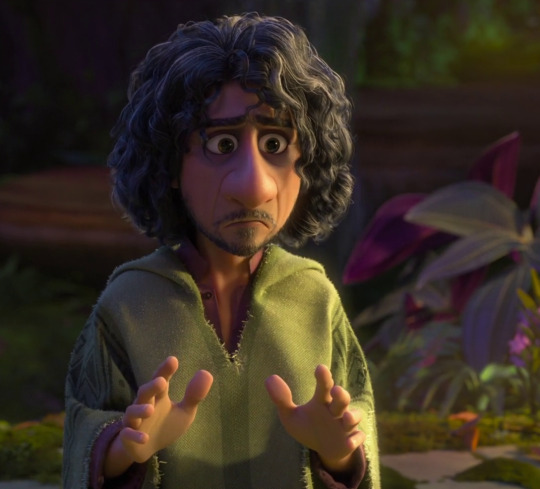
See the full post
467 notes - Posted April 22, 2022
#2

My commission by @kinschi is ready! I'm so glad I could have Bruno holding the Pan Flag drawn by her, she's one of my favorites fanartists!
Because in my head Bruno is Pansexual!
I'll see to put it as a profile picture, I hope it'll fit well and we would be able to see well Bruno & the flag!
769 notes - Posted August 8, 2022
My #1 post of 2022
First part of the pages of the Encanto book that got released recently in France
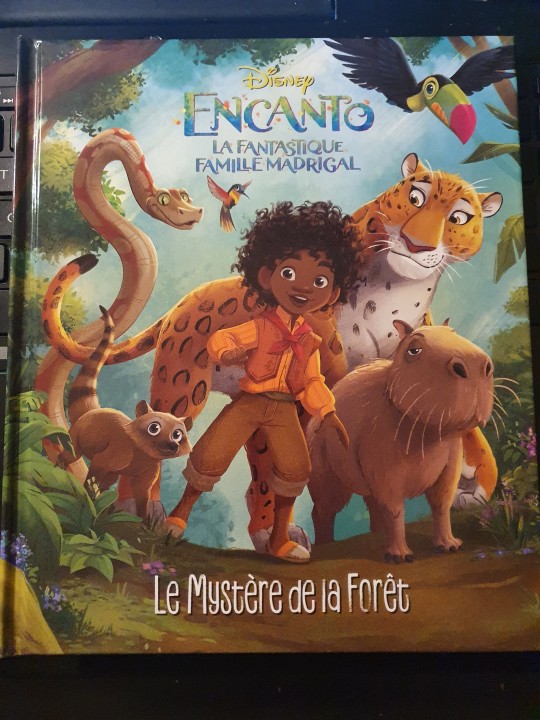
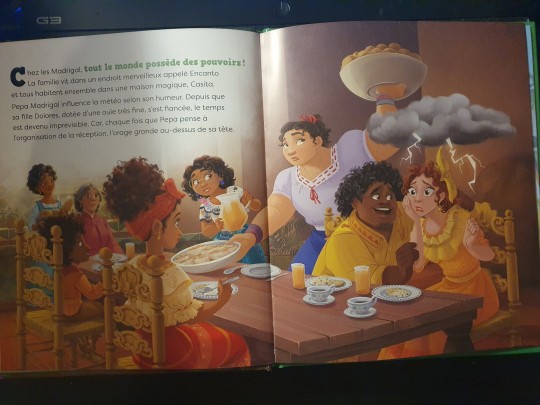
See the full post
1,249 notes - Posted April 8, 2022
Get your Tumblr 2022 Year in Review →
2 notes
·
View notes
Text
One of the things I love about “We Don’t Talk About Bruno” that I think a LOT of people don’t realize is that the Madrigals never really sing about Bruno as a PERSON, they sing about his prophecies, and because his prophecies were so scary, that’s why it’s a big surprise when he himself turns out to be a sweetheart, since his negative prophecies, (aka the fear of the people around him) is what caused everyone to associate him as a bad scary person. However like I said before, the song features the family members singing about his PROPHECIES and the effect it had, not Bruno himself. Before the song started, Mirabel herself specifically asked the question “If he had a vision about someone, what would it mean?”. Then her uncle Félix immediately barges in, and expresses how whenever he would say something bad, it would happen. Then of course the song starts, Pepa expressing how he said it would rain on her wedding day (under the influence that it was a prophecy), then Dolores who said he gave her a vision about the man she loved marrying another (and that no one understood his prophecies), then Isabela who said her vision was that the life of her dreams would be promised. The only person who is directly speaking about Bruno as a person would be Camilo, but again, he was just joking. Everyone else however, was mainly expressing the trouble with his prophecies and the negative affect it had, because…..that’s what Mirabel asked about. She never asked about Bruno himself, it’s not like the song was mainly “oh, your tío was THIS kind of person, he would always do this and say this”- and keep in mind, if it DID go that way, it wouldn’t fit at all for the story of course, not just because Mirabel and we as the audience need to figure out what kind of person Bruno is for OURSELVES, but because it would defeat the purpose of how the Madrigals can’t open up about things, or say things that would rock the boat, aka talking about Bruno, since they don’t talk about him lol. I bring all of this up because I always see people say how the family just talked shit about him and how it didn’t make any sense that they missed him, so when you keep ALL of this in mind, that’s not true. They were never allowed to talk about him, so when Mirabel brought him up, they spoke of his prophecies like she had asked, but just because the song is trying to convince the audience that he could be bad, doesn’t mean that the family thought he himself was bad, or didn’t miss him. Of course they missed him! They just couldn’t express that or even talk about him, which is why I had said before that I feel like people misinterpret this song and it’s purpose. It’s not about the family painting him out to be a villain and hating on him because of his prophecies, it’s them DISCUSSING his prophecies and the negative effect it had, but once he returns they express how they truly missed him, not caring about his prophecies anymore. People also seem to forget that this story to told through Mirabel’s eyes, everything she knows and what she’s seeing is what WE’RE seeing, so she’s not going to see what’s behind the curtain of each character and how they truly felt about Bruno, she’s only going to see them not talk about him, and be on edge when he’s brought up. It’s the family gossip song as Lin described, even though of course, the ending obviously indicates that there was a deeper story to how they all felt about him, it just wasn’t shown, and in this case, it makes sense why, that’s the point of the movie, that we can’t see these character’s true motives and feelings because they always have to hide it or keep it under control.
So yeah, that’s why for me personally, I can definitely believe that the family missed Bruno, and cared about him. Sure, they didn’t understand his prophecies, and were on edge over the trouble he kept causing, but that didn’t mean that they didn’t love him, that just means that they suffer from miscommunication, and the fear of displeasing the family matriarch, hence the ending where they now onto that they don’t need to hide anything, they can talk everything out like a healthy family even if there are mishaps along the way.
#encanto#disney’s encanto#walt disney animation studios#jared bush#disney animation#walt disney#family madrigal#mirabel madrigal#encanto movie#bruno madrigal#we don’t talk about bruno#pepa madrigal#felix madrigal#dolores madrigal#camilo madrigal#isabela madrigal#lin manuel miranda#bryon howard#encanto character analysis
83 notes
·
View notes
Text
okay so i've seen a few people mention this before, but not one comprehensive post yet so here goes.
as others have pointed out, the madrigal family have signs of their gift on their clothes:

antonio has animals sown onto his vest, like a toucan, capybara, and even his jaguar!

camilo has chameleons on his ruana to symbol his shape-shifting abilities, and it's actually confirmed that it's also where he got his name from!

dolores has these transmission lines on her dress to represent sound waves, which you can see are also featured on her door!
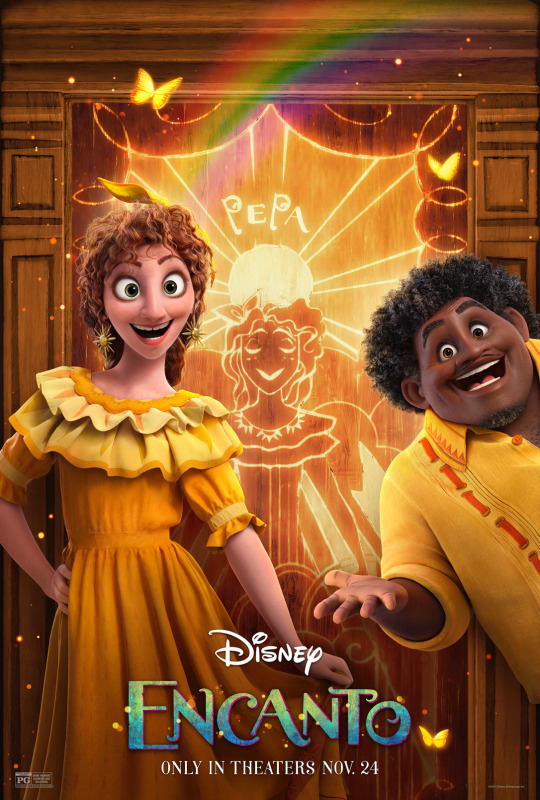
pepa is a bit more of a stretch since her dress isn't really detailed, but her earrings are in the shape of a sun as a nod to her weather-controlling, and the abundance of yellow on her might be symbolism for her sunny disposition? not too sure
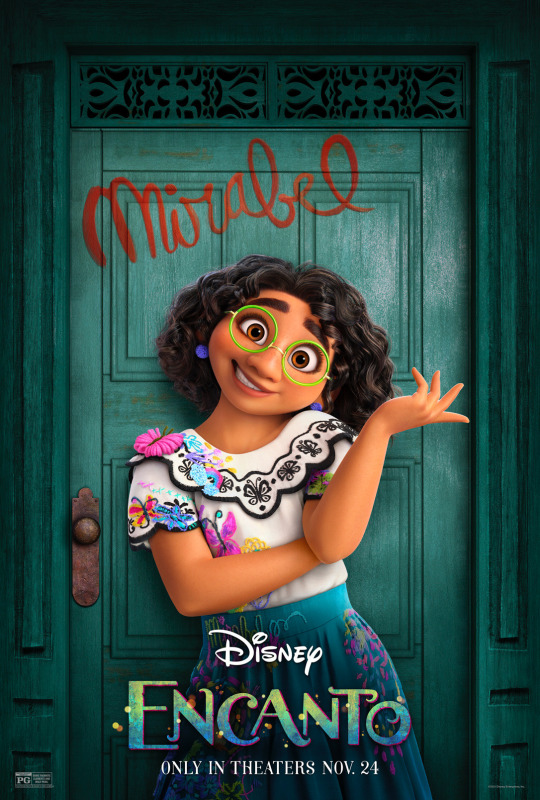
now mirabel might not count since it's never stated what her gift is (if she even has one) but i'm going off a theory that i think fits perfectly with the story, but i think her dress is meant to show her connection to the family and how she brings everyone together, small aspects of all their gifts shown here

(edit: someone mentioned that she did have something so i'm using a different image since her skirt is not in view) the upper part of luisa's dress is plain and may convey dependability in its simplicity, but her skirt has barbells on them to showcase her strength

isabela is probably the most straightforward of the family since there are flowers directly on her dress which she creates with her gift, and they change along with her breaking out of that "perfect" mold she was expected to fit

julieta has ornate floral patterns on the pockets of her apron, which may relate to medicinal herbs that work to the same affect as her home cooking, and the apron specifically is representative of her motherly nature
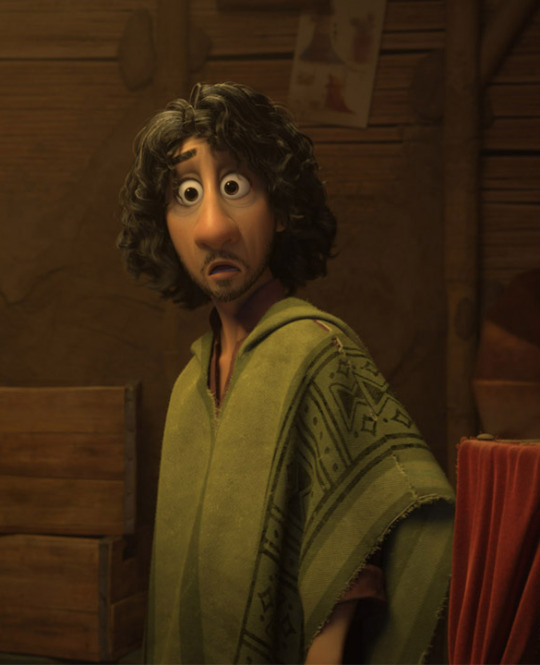
(not using the character poster since you can't see anything on the door) so bruno has hourglass detailings on his ruana since he can see into the future

now alma's gift is technically the miracle of the candle, and nothing about her outfit is particularly special, but one thing of note is how her dress is a different color from the rest of the madrigals
pepa's side of the family has bright warm colors, julieta's has calming cool colors, and bruno's green is a sort of mix of the two, while alma has this mature maroon that singles her out as the matriarchal head of the family
i hope this is a worthwhile contribution to the great encanto fandom on here, and i had quite the time putting this together!
edit: if you check the reblogs you'll see some people mentioning things i didn't notice!
#encanto#encanto spoilers#the family madrigal#alma madrigal#pepa madrigal#felix madrigal#julieta madrigal#augstin madrigal#dolores madrigal#isabela madrigal#luisa madrigal#camilo madrigal#maribel madrigal#antonio madrigal#character design#analysis#the geek speaks
2K notes
·
View notes
Text
In Defense of Abuela Alma
It will be a bit surprising to say that one of my favorite characters from Encanto, was Alma Madrigal. As far as I see, the majority of the fandom doesn’t really seem to like her as a character or as a protagonist in general. It appears that the fandom seem her as villainous rather than antagonistic (which is her actual role.) After talking with a fellow Tumblr pal, I decided to give Alma a small the defense in regarding her role as a character.
Disclaimer: I am not going to justify Alma’s actions as she’s clearly in the wrong in the movie, but I will defend her as a broken woman with good intentions but who never really saw the way for her mistakes instead of a cruel figure who gets “redeemed” because of power of love. Still, I am going to adress her flaws as a character, and give my perspective on the roots. Still, there will be not justificiations, and this is just for entretainment :)
She’s a very complex character and an amazing example of how grief and trauma can affect us.
I’ll break my defense through parts and also take my family experience and my perspective as an actual Colombian woman from a similar family structured as Los Madrigals in Encanto (and maybe go over the reasons about why I never really dislike or hate Abuela.)
I am not here to change minds, but just rather present my perspective on Abuela in this very long post. I’m also doing this for fun and talking it as a fun writing exercise :D
Part 1. Alma is an antagonist, not a villain
Before y’all come to bash me with the whole “Aren’t those the same thing?” Let me tell you that an antagonist and the villain are not the same thing. This honestly is one of my biggest pet peeves in storytelling.
Yes. A villain can be an antagonist (which is mostly the roles), but an antagonist isn’t necessarily a villain. Let’s get through the basic definitions.
A villain is an evil doer who purposely harms people and will directly oppose the hero or protagonist with the intent of harm.
An antagonist, is someone who opposes the view of the hero but doesn’t necessarily mean that they have bad intentions.
Abuela Alma never had bad intentions throughout the movie, but she opposed Mirabel’s view on how the magic could be saved and what is really tearing this family apart. She never really tells Mirabel off with bad intentions, she just has a different perspective that opposes her which creates conflict.
The reason of why we Alma is seen in a bad light is because we are seeing Mirabel’s point of view in the entire situation. We know how Mirabel feels and how she feels, but we don’t really see the full Alma Madrigal in the film but rather glances of her that make her seen as the “bad guy” of Mirabel’s story.
Still, that does NOT justify Abuela’s terrible actions. I’m just stating that we don’t get to really see how Alma perceive things which can explain (NOT justify) the way she acts.
One of the things I find interesting when analyzing characters (still, taking from the previous point) is how the story can actually shifts perspectives, roles, and overall who is the actual good guy of the story. Encanto doesn’t have villains, it just have complex antagonist that challenge Mirabel’s POV (like the town talking terribly about Bruno, or her difficult relationship with Alma.) Just like the town’s perspective of Bruno, Alma’s perpective on what’s right is meant to clash with Mirabel’s perspective on the things, which creates conflict and advances the story but doesn’t necessarily make anyone from the sort the antagonist.
Of course that many people were wrong about Bruno and what was really causing the conflicts, but there are not really strong reasons to make them villains. Not to mention that the movie is not about who is wrong or who is right, it was about a dysfunctional family accepting themselves, which really highlights Alma’s role to oppose Mirabel’s view but also represent the other side of the argument.
Alma’s antagonical role, in structure wise, represents the argumentative side in oposition to the role Mirabel plays in “Encanto.” She, as a character, perfectly balances out Mirabel better than the town or any of the family members like Isabela (who also seems to have conflict with Mirabel in the story), and her interaction with Mirabel throughout the movie is more intense because they are kind of the two sides of the same conflict:
What is really best for the Madrigal family and how can we preserve the magic?
Still, everyone’s entitled to their own perspective and opinions and portray the character as they want. I just disagree with the way some people portray Alma, which is fine not everyone is going to like her, but I feel that she is a great character to analyze over rather than just say she’s a bad person.
Part 2. Abuela does love and cares for Mirabel and her family, She’s just taking her role as the matriarch of the family.
Alma can be seen as quite cold and strict for being an abuela and placing a lot of pressure under her family, which can make believe she only cares about their gifts. Let me tell you that my Abuela was certainly like Alma when growing up with her. Just as Alma, my Nana lost her husband at a pretty young age and had to take care of six children all by herself. Based from stories my mom and my aunts told me about my Abuela, she was quite stern and could be quite mean at times, but that was the way she was raised as and she had a lot to carry (plus grieving over her death husband.)
They never justify her actions, but they mentioned that my abuela had to make a lot of sacrifices just like Alma had to make. She made a lot of mistakes, but did what she thought was best for the family and as the matriarch. Abuela is very respected in our family as a woman who rose from poverty and raised my amazing family by herself, and now gets to travel a lot + she’s a very sweet woman with a gentle soul who makes mistakes as a human being.
So, I could see a lot of my abuela in Alma Madrigal. Both had to be stern because she needed to keep order around the house as a matriarch. At first glance you could believe my Abuela didn’t care about us just like people believe that Alma doesn’t, but in reality both always thought about their family in the actions they took. I’m not going to say that they were the right actions, but both have good intentions.
Now, let me talk about the important role Alma has as the family’s matriarch and abuela. Maybe my Hispanic culture is a lot different from other cultures (I’m taking the American perspective, since I live in the U.S.), but Hispanic abuelas aren’t your sweet old ladies that bake cookies. They are quite stern, strict, and will not hesitate to correct you, or hit you with a chancla for misbehaving. Still, they show how much they love you in their own though way just as Alma does with her family. After watching once against the breakfast scene. Let me tell you that is Alma is acting just as a Hispanic abuela and a matriarch would. My abuela was quite stern and strict with me, but she only wanted to see me grow into the best version of myself just as Abuela wants for her family.
I’ll go on to talk about the probably reasons of her “cold demeanor” and the pressure she places in the next section because I noticed something important about her role in the story and story building of the movie that I don’t know if it is addressed in here, but I’ll address it anyways because it is very important about understanding Abuela Alma in Encanto.
Anyways, I was rewatching as many scenes with Alma interacting with the other family members, and I was trying to look upon her expressions and her tone of voice. I found myself chuckling at how cute her positive interactions were or how soft her tone was when she spoke (when she was not upset.) I honestly love the way she speaks with Mirabel in most of her scenes. Her tone is not cold or distant, she speaks with noticeable love and affection. Of course that she scolds her, but she still sounds caring. She just acts as a mother correcting her child with Mirabel in most of the misunderstandings prior to the whole climax of the scene.
I also loved the fact that, even though she didn’t really appreciate having animals on her seat, she thank Antonio for his consideration instead of scolding him for his actions. I know that some of you would say that she didn’t do that because he was a child, or that her parents were around, but in that same scene she scolds Mirabel. As I mentioned before, Hispanic abuelas will not hesitate to correct you if you did something wrong or scold you. That means that they don’t care if your parents are around, you’re never save from the chancla. I guarantee that fac based on experience.
Anyways, Alma in majority of the film treats her family with respect but is quite strict and a bit pushy, since she’s the leader of the Madrigals and the martriarch. Still, she genuienly showed cared for the family and never really was that mean to them. When she was angry or scolding them, for me (since my Abuela is like that) she was just taking her role and the duty to mantain things in order. She was correcting them when she felt whenever it was needed, but she does show love and appriciation for them in her tone of voice. Still, she made serval mistakes with her family, and that is not excuse to how they negatively affect it.
Before y’all come with the whole “She was blaming Mirabel for the magic being lost.” I think it was something she said in the heat of the momment, I’m NOT saying that what she said was okay, but I’m only saying that she never really meant that. In that scene Alma was probably upset over Mirabel for “misbehaving” (more on that in another section), and Casita being a mess. It also didn’t help that Mirabel was rambling about the magic, and Alma was having none of that. It had happened to me and many loved ones that we scream things that we never meant to say. We are just not thinking clearly. I do believe that is what happened with Alma in that scene as later in the film she tells Mirabel that was never her fault.
Note: I like of the cracks of Casita really represents how the family is really falling appart, and I just find quite heartbreaking the final cracks are dividing Mirabel and Alma after she tells her Abuela about why she is wrong.
This reinforces that Alma never really meant to put the blame on Mirabel, but she was super upset to her to think properly about what she was saying. I often find quite adorable that Alma actually got to think and reflect onn what Mirabel told her, and she does take full responsiblity about her failling to her family but also deciding on explaining the reason she acted the way she is.
Regarding the argument that Alma only cared about the gifts, I am not really sure that she did prioritize them as that’s what she cared mostly in the family. Thinking over how she says that she held her second change too tight, I think her pushing about the family and the desesperation of lossing the family rooted from the traumatic experience over loosing her husband and recieving a miracle that pretty much kept her remaining love ones safe.
Regarding her behaviors and how negatively she affected her family, there is not a real excuse or justification of her actions. Just like Alma said, the family is quite broken because of the mistakes she had made.
Part 3. The surface pressure of being a martriach, a town leader, and a immigrant woman
As I thought more about what other reasons Alma was behaving the way she was, I started to think more about her role not only in the family but rather in the town. I decided to look back over how she got the miracle and first song of the movie. We know that the candle is the source of magic within the Madrigals and gave her Castia (one of the best characters in the movie.) I was like ok, so Casita and the magic was that keep safe everyone from the dangers of outside. Then, I decided to look back and think about Abuela’s verse in “Family Madrigal”
I then realized that everyone in town looks up to Alma as the martriarch of the Madrigals and some sort of town leader.
Taking that fact, I started to understand a bit more about why Alma didn’t really discuss about the magic fadding, and made empatize with Alma more as a character. She may well not have any powers like Mirabel does, and she pushes her family for the town, but we have to remember one thing:
Alma has to look for an entire town herself, and she’s responsible for making sure everyone is safe and keep order around. That is a lot of preassure for one woman alone, not to mention she also has a family to take care of.
It does make sense that everyone will look upon Alma as some sort of leader becasue she was the one who recieved the miracle and her family has magical abilities. This is pretty much confirmed after Alma has to go to town to reassure the magic is undercontrol (before Isabela’s “What Else can I do.”) Which also explained a lot why she chose to lie when Mirabel told her that the magic was dying. She in fact believed Mirabel, but Alma had also to balance her duty and bring reassurance that she got everything under control. Still, that was pretty wrong
I think that part of Alma’s demeanor can also be taken that she was to act strong not only for her family and for the town. @learningisfun2021 and I talked about Alma and Encanto (because we both loved the movie) and I talked to them about making this post and whether they had suggestions about it. A big shout out to them for suggesting Alma’s struggles and how she lived in a new place as an immigrant. I think it does humanize more Alma as a character, and gives more layers to this wonderfuly composed character.
As a Colombian immigrant myself, I can understand a lot the rough path Alma had to go through. Just like many immigrants, Alma and her family were forced to leave and find a new place to leave. Alma got one of the worst cases, which was living during a violent time, let alone seeing her husband sacrifice himself in order to protect his family leaving a young woman to raise three children all by herself. Not to mention than she ended up becoming the martriach of the Madrigals, which is quite a large family. As an immigrant woman responsible for her family, Alma had to look the best for her family and making strong sacrifices to keep them and with the intentions for them to grow although is not always what they need.
For example, trying to keep Pepa from causing storms (not with the malicious intention to refrain Pepa from expressing herself, but because the weather could be “dangerous.”
Or, trying to arrange a marriage for Isabela believing that it was probably the best for her. Which is another mistake she made as a grandmother as a parent, but also reflect on the way she percieve things and probably it’s was something to be expected in the year this movie is set in.
Anyways, over years of experience and trying to keep not only her family safe but an entire town, Alma had a lot to endure all by herself and probably more things (+ living with her traumatic experience), which can be assimilated with the immigrant experience Things like sending your children to a better place, not fully knowing if they would see them again, work a lot of hours with little pay just to mantain their families, breaking their backs to bring at least bread to eat.
We don’t know much about what other sacrifices Alma had to make since everything is on Mirabel’s story, and I do think this is reflected through Mira telling Alma that she endured and went through so much for the ones she loved. I honestly love the escene where they reconcile and I think what really makes the butterflies flying around something more beautiful it’s probably correlated at the last point of this post before the conclusion.
Anyways, talking back about immigrants, we have to admit that they are quite brave and have to endure a lot. I always tear when I hear many immigrants stories about how they had to face poverty, death, and strong difficulties to become happier and successful in life. Although sadly this is not always the entire case of the situation. Still, I do believe that Encanto did made great connections with Alma’s back story with some immigrants.
I also wanted to mention that I found adorable Mirabel crediting Alma for her bravery and taking care of an entire family and rasing three kids all by herself after experiencing a traumatic experience. It does show that Mirabel still somewhat looks up to Alma not only as the martriach but as a model woman just like many other immigrant single mothers are.
Part 4: Abuela and Mirabel: Understanding one’s history and learning from the other.
I was rewatching some of Abuela’s interactions with Mirabel. I saw the scene when Mirabel mentions that she was making surprise decorations for the family, but Abuela kindly tells her that maybe she should step aside. At first, I thought that was a pretty douchey thing to do until I remember the conversation Mirabel had with her father earlier. In that scene he tries to comfort his daughter about being the one with not really having a gift, but Mirabel tells her that she’s totally fine.
As far was we know, Mirabel already grew over the fact that she doesn’t have a gift (but does feel left out about being the “less special one”), but I believe that perhaps the others don’t realize that fact. If Agustin believes that Mirabel just feels bad that she doesn’t have a gift, what if Abuela does see it the same way or rather differently. The more I thought about it, the more I started to realize that Abuela never really degraded Mirabel for being the only one without a gift (or an important role), but rather she just saw thought that Mirabel acted this way for not having a gift.
This is reinforced later in the film when Abuela tells Mirabel “Having no gift is not an excuse to misbehave.” In her perspective, Mirabel is trying so hard to be as helpful as she can because she feels bad for not being the one with a gift. Abuela Alma probably just feels guilty that Mirabel is getting in the way because she feels the need to do so. Changing my overall feelings over Alma’s real intentions in the scene where Mirabel tells her about that gift. Alma told Mirabel that maybe she should let the decorations to another person not because Mirabel didn’t have a gift to help, but rather that she felt guilty that Mirabel feel the need to bother to place decorations since she believes Mirabel’s actions root on the fact that she feel bad for not having a gift.
This is just a theory. There wasn’t any moment in the film where Alma blames Mirabel for not having a gift, she actually doesn’t really blame anyone for the manner. She probably believes is the magic, and probably carries the guilt of the fact she gave Mirabel the hope that she could get a gift.
Thinking more about it, I realize that this is showing how pretty much Alma and Mirabel don’t really understand each other. Mira not really understanding why Alma acts this way until she actually opens up about why she does, and Alma never fully understanding Mirabel until she expresses how she and everyone else feels under Alma’s pressure.
I think this is highlighted on each of their interactions, and perhaps the main reason about why they often seem to clash until the big argument on the climax of the movie. Throughout the entire film, Mira seems to see her grandmother as an authorative figure who just doesn’t seem satisfy with everyone’s effort, and Alma pretty much sees Mira as a young girl desperate to get her attention because she’s just not like the rest of the family.
This made think that Encanto does actually have a villain, but its a very common and well known villain which is:
Not communication.
One of the major themes in Encanto is communication. From the first interaction with Mirabel with her family to the last, the importance of communication was always present. The best examples where in the mayor songs where we got to find out what a character really felt like ( “Waiting on a Miracle”, “Surface pressure,” and “What else can I do?”)
But then, we have the villain song “We don’t talk about Bruno.” I know that Bruno is not the villain, but I’m calling this the villain song because majority of the stories being told highlight the real “villain” which is not communicating to actually get the full story.
Besides being the chachiest tune out all the songs, this song really reflects the issue around the Family of not communicating with each other properly.
From Pepa telling how Bruno made her “ruin” her own wedding due to a misunderstanding.
Dolores telling Mirabel that Bruno was not really understood very well and often got everyone confused.
Camillo most likely singing about the rumors he heard from his uncle
The town talking about how they were affected “due” to Bruno’s profecies.
Regarding, Isabela and Dolores verses at this point, I can’t see anything that really correlates to the main issue, so I’ll skip them, but the point is there. There was a clear miscomunication and things taken the in a way that is quite far off from reality or not exactly true. This actually does show between the final confrontation during the climax of the movie, and the reconciliation where Alma finally opens her eyes about the whole situation and decides to take the first step and finally talk things through which leads to both a beautifully done emotional and visually stunning scene through imagery (more on that) and music.
I keep thinking on what Mirabel and Alma tell to each other as their made up for a tremendous fight they have, and I’ll give my best take. I think its somewhat of a situation where Mirabel and Isabella learn from each other during “What else can I do” but its more on the emotional level. Mirabel pretty much told how she and the family over Alma’s constant pressure, so it was Alma’s turn to lament on the mistakes she made due to her blindness over the past and wanting to keep what made her family safe alive that she lost her way.
I think Mirabel telling Alma that she endured a lot in a way that shows admiration, is Mirabel not really saying that she forgives Alma for everything she done but rather it’s her way of telling her that she still loves and admires her for trying her best for looking out of the family (which I believe she original though Alma didn’t) This dialogue is a shift on Mirabel’s opinion over Alma and how she learned so much from talking to her and understanding her better.
Then, here comes one of the best moments of the movie, where Alma tells with love and genuiniety how much she loves Mirabel, and stops seeing her as the girl desperate because she has no gift, but just like Bruno stated, the real gift that the family could have:
The character brave enough to break the cycle of miscommunication and silence, to actually talk thing through with other for the best of the family.
Mirabel was the one who took the first step and started to encourage the others to do the same, and I think Alma decided to take the “first big step” as the martriach of the family when she sings this particular verse on the movie:
“The miracle is not the magic that you got.
The miracle is you.
Not some gift, just you.”
I don’t think she was appologizing over prioritizing the gift more than they because there was never a scene or discussion about it. It was all about the pressure and expectations but not really about having gifts or not because Felix, Agustin, and Alma don’t have gifts just as Mira. I think this relates to the family stepping foward and accepting themselves and communicate more.
Alma, in my humble opinion, was taken away the idea that the family was never enough for her as she appoligizes and tells them that regardless of her past mistakes and pressuring for their gifts, they were the real gift she had and the real reason why she held so tight and push foward. She’s reassuring them that she loves them.
Note: I was trying to think about what point I could make about Alma and Bruno. I still not really defend her actions, but I think she thought Bruno left because he just stopped caring or it was the most plausible reason she could think. Bruno never really mentions that he gave the phrophecy to Alma before leaving, and the scene shows that he left that same day he created it. Based on Dolores’ information during “We don’t talk about Bruno” we know that the family didn’t really understand Bruno’s prophecies, but what if they didn’t really understand him as well as he is an adorable quircky fun uncle.
I don’t think Alma really believed that Bruno didn’t cared for the family, but it was probably the best explanation she got. Her tone was harsh, but it reminded me of an authorative figure trying to impose...well their authority. Anyways, I do think that it was tough for Alma dealing with her missing son (another traumatic experience to the list) and it really shows when she reunites with him when he comes to defend Mirabel.
Her expression and the fact that he first thing she does is embrace him, just shows that Alma was just as heartbroken as her daughter’s where for Bruno’s dissapearance.
Part 5: The uggly side of trauma, the mistakes of parenthood, and the flaws of the human being.
This is going to be one of the hardest things to do and talk about as it’s a pretty delicate subject. The climax of the movie shattered me because I kind of related a lot to Mirabel but also it reminded me of many situations I shared with a family member I don’t exactly have the best relationship with. I understood the raw emotion and the anger, which I did relate a lot, but it was after the reconciliation that made me love and appriciate Alma as a character.
Dos Oruguitas is one of the most shattering scenes and hardest to watch because I just cried over the emotionally powerful song and the visuals which represented Alma’s pain pretty well. I felt moved and I related a lot my nana and my mom with her character. Loosing your husband at a pretty young age and in a horrific way it’s a very traumatizing thing to live day to day, not to mention that you now have to fend for yourself and three defenless babies.
After knowing this information, Alma’s character becomes much more simpathetic because we now understand why she’s pressuring herself and the family so much, and why she keeps mumbling about the magic being strong and keeping the miracle alive. It was never about being the most important thing for her but:
It was the thing that keep her family safe for 50 years, and lossing it kick in Alma’s trauma into loosing those who she loves and care the most.
I mentioned that Alma has a lot the pressure over being the martriach of the Madrigals and having an entire town looking up to her, but I never really mentioned the actual pressure she placed on herself. Although she was suffering, Alma put the pressure on herself to be the strong woman, mother, and eventually grandmother that her family needed. To her perspective, any sign of weakness could impact those around her negatively so she ought to herself to be strong and brave even though that meant almost looking as cruel and careless.
This sense of feeling weak is bad stems from her trauma. I never been in a situation like Alma was, but I did live a traumatic experience during a camp where I felt humiliated and weak. As I went through that situation, I was battling with myself because I didn’t want to be seen as helpless or weak. Trauma can affect us on a great impact, and for me feeling weak was just the worst feeling I ever wanted to feel and I think Alma felt that way too. Throughout the movie she never really show vunerabiltiy until she never opened about her trauma with Mirabel which was proably one of the hardest things to do for the strong head of the household.
As I read in different post about Alma, and something interesting that @tenapricots mentioned (shoutout to you <3) was that Alma was an interesting example of a realistic portrayal of trauma and the mistakes of parenthood, and I honestly couldn’t agree more. Alma is just an amazing example of a very human character dealing with difficult thing like trauma in a very real and realistic manner. Not to mention that the movie is also about parenthood and the mistakes parents made (note the short released along with this movie: Far from the Three) so I’ll give my take on this points.
1. The uggly side of trauma - Alma obsessively holding what’s protecting her family and trying to reassure that the magic is strong, and denying the reality, can be seen as Alma’s trauma speaking through her. We know that Casita and the magic from the candle were what kept Alma safe. She does mention that in the movie when she’s talking with Mira on the place her husband dies. She laments that she wasted her second chance holding what keep her safe too tigh out of that same fear that without it she was going to loose her family. Yes, it is far from the reality, but keep in mind that loosing her husband in a horrific way was quite scarring to Alma, and seeing her desperately wanting to hold together and protect those who she love is a perfect way of showing how trauma can affect us.
2. The mistakes of parenthood- Just like everyone, Alma made a lot of mitakes just as many parents does. One of her biggest mistakes was not really encouraging to let her children really express themselves because Alma never really expressed how she felt because her mind was all around being the strong figure her family needed. Her mistakes of parenthood can be seen through mostly Pepa and Bruno. Pepa having struggles with her emotions, and Bruno really feeling downgraded because his prophecies weren’t exactly what others wished to see.
3. The flaws of the human being.- One of the aspects that make love Alma are her imperfections. I personally believe that if you love a character, at least you have lo love the good and the bad and not just one side. Alma is never really represented as the villain of the story or the bad guy, but just an any human being who makes mistakes but it also willing to fix those mistakes at the end.
I also heard many other comments from the Hispanic community that Alma sharing her trauma with Mirabel was also something that it not very seen quite often. Sharing your traumatic past experiences is something really tough that could be both rewarding or a terrible mistake in the worst escenarios, but let’s focus on the positve. Alma sharing her trauma with Mirabel is one of the most important scenes to understand her character. It give us the real Alma, when she’s not trying to be strong, but someone who saw the error of her ways and decided to start over right and take the first step to heal.
That moment was her realization that she didn’t have to be always strong, but also she had to be true to herself and start seeing her imperfections in a postive light and something on how she can improve.
It gives hope and opens her eyes about how much she have been missing due to her fears blinding her way.
Now, let’s move to the part I am most eager to tak about:
Part 6: Cien Años de Soledad (One Hundred years of solitude) and the meaning of the yellow butterflies.
“Cien Años de Soledad” is by Gabriel Marquez Garcia (One of the most important author’s in Colombia) is a very important book to both Hispanic literature and one of Gabo’s most famous works. Since this work is certainly a must do reference in the movie, which they did through the yellow butterflies (one of the most remacable imagery used in Gabo’s novel.) I knew that the yellow butterfies were a reference to Gabo, but I started to wonder if there was another meaning to it other than referencing Gabo.
Sadly, I never read the Novel to give my full on perspective and a comparison to the it and the movie. I did try to make some research on what’s the book is about and wondered if perhaps Encanto drew some inspirations from it. The book and movie have some surface similiarities like having a magical town with fantasy elements, and focus the story about a family. Those are the things I could correlate, but the book had a much serious story with quite dark elements like incest, sex, and some aliterations to politics. So there isn’t much that I can say about “One Hundred years of solitude” and Encanto other than the butterflies.
Anyways, I wanted to see if the scene with the yellow butterflies in Encanto had a similarities in meaning over the yellow butterflies presented in the book by Gabo, so I started to investigate over what did the butterflies meant and represented. There were a lot of differenrt takes, which kind of told me that there wasn’t an exact meaning to them as it appeared it was up to the readers interpretation. I decided to look into the character who was chased by this butterlies.
Some context of the book:
Mauricio Babilionia and Meme (Renata Remedios) two lovers from different family statuses. Meme is one of the descendants from the family the book is focusing about, and Mauricio Babilonia was an attractive poor mechanic. . Anyways, Fernanda (Meme’s mother) discovers this relationship and sends Mauricio Babilinio to be kill for “thief.” According to the story and what I read, he was chased around by yellow butterflies that marked his strance in the story until he dies.
Many people have different takes on what the butterflies mean, but the most famous meaning is about the passion, solitidude, and impossible love between Meme and Mauricio. The butterflies are a representation on how Mauricio feels about Meme until his tragic dead which is marked by the last butterfly dying.
After thinking about the meaning, I do think Encanto didn’t just place the butterflies because reference but it also hold a meaning that ties Alma and Mira together. The butterflies represent the change for the family as they decided to transform into the better and most beautiful versions that they could be, but also I think I can see the emotional and imaginery value that the yellow butterlfies represent during Alma and Mira’s conversation.
When Mirabel sees a yellow butterfly, is not only part of Bruno’s vision, but a beautiful reprensentation of Alma’s love for her family and her late husband. The butterflies have been always around the entire movie, but since we are on Mira’s feet, we don’t see them until now, and it’s done in a powerful way that references the book and gives it a original twist for the story. So when Mirabel sees the yellow butterfly, she understands Alma’s love and solitude.
If you listened closely, one of the tunes of “Dos Oruguitas” is present during Alma’s verse in “Family Madrigal” which ties Alma’s past with the family, but also is a subtle representation of the butterflies that follow Alma. I do think that there are more butterflies hidden, but you get the gist.
What made the scene more impactful to me, still talking about the butterflies and Gabo’s story, is how more and more butterflies start to surround Mirabel and Alma as their embrace is marking the change in the family as the verse from “Dos Oruguitas” is talking about breaking from their cocoons and moving to their future which is what the madrigal will be doing as they start to see in amazement the butterflies surrounding them simbolizing the end of the family solitude but also celebrating their strong love for each other.
It can also be a methaphor for all those years in pain and solitude the first yellow butterfly marks the start of hope and a new chapter for the Madrigal’s lives.
Abre los ojos, it’s the big conclusion
Overall, Alma is honestly one of my favorite charactes from Encanto. I just love that she has so much levels and quite an empathethic history that I can relate to my family. I understand why many may not be lean to like Alma as a character which is understandable. Everyone’s is entitled to their own opinion, and I am insterested to hear your thoughts and takes on Alma.
Feel free to coment and be respectful. Thank you so much for reading and I wish you a great day :D
#encanto#mirabel madrigal#alma madrigal#pepa madrigal#julieta madrigal#bruno madrigal#antonio madrigal#dolores madrigal#camilo madrigal#isabela madrigal#luisa madrigal#agustin madrigal#felix madrigal#pedro madrigal#disney encanto#character analysis#She's an amazing character to analyze#I will also post this on my DA#For the 100th time#I AM NOT JUSTIFYING HER ACTIONS#why do I keep loving the most unpopular characters?#Also I'm supposed to be sleeping but the anxiety of letting y'all down for not finishing this was eating me alive#this was actually pretty fun to do#I never really expected it to get this long#hopefully is decent enough#WEEEEEEEEEEEEEEEEEEEEEEEEEEEEEEEEEEEEELPPPPPPPPPPPPP
228 notes
·
View notes